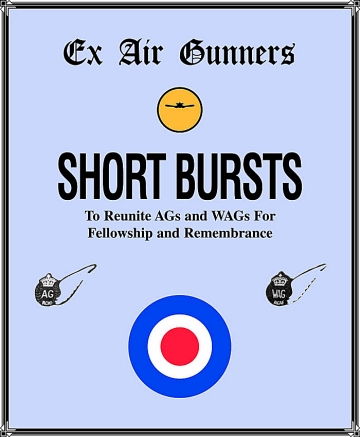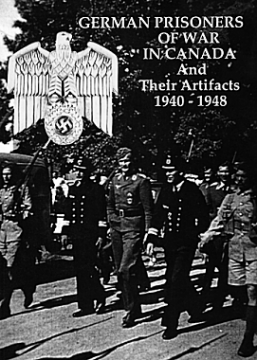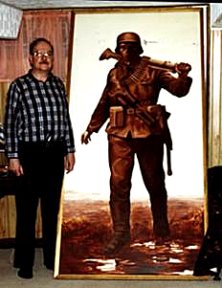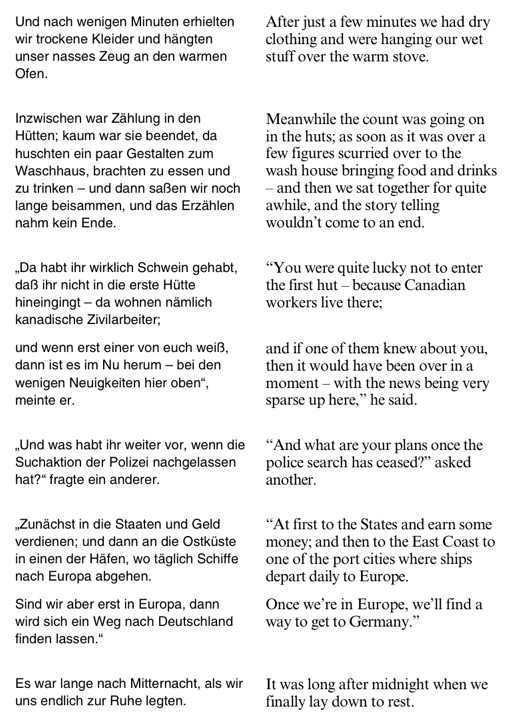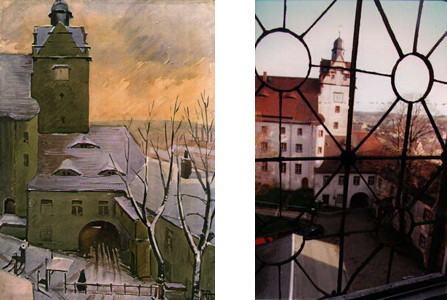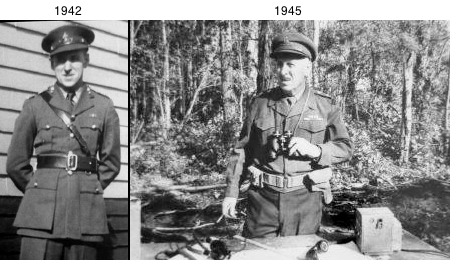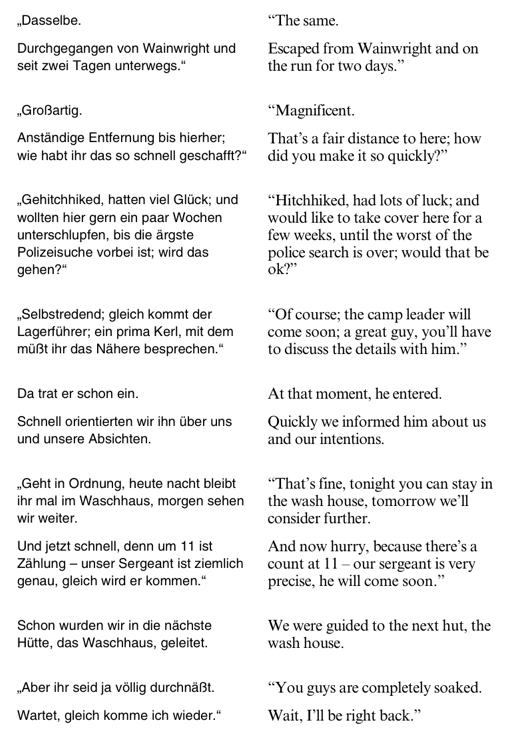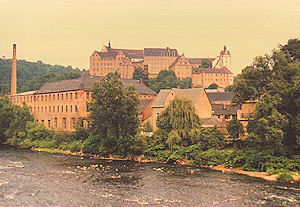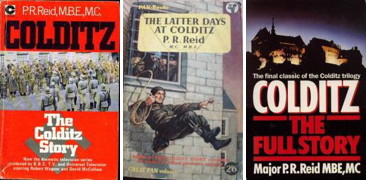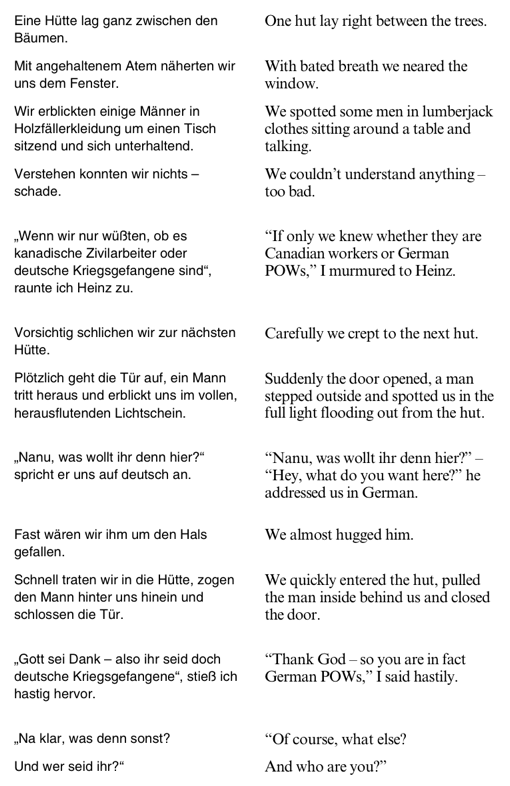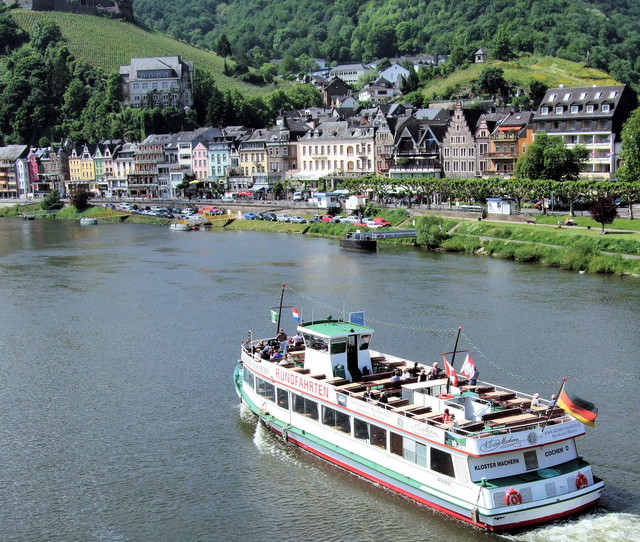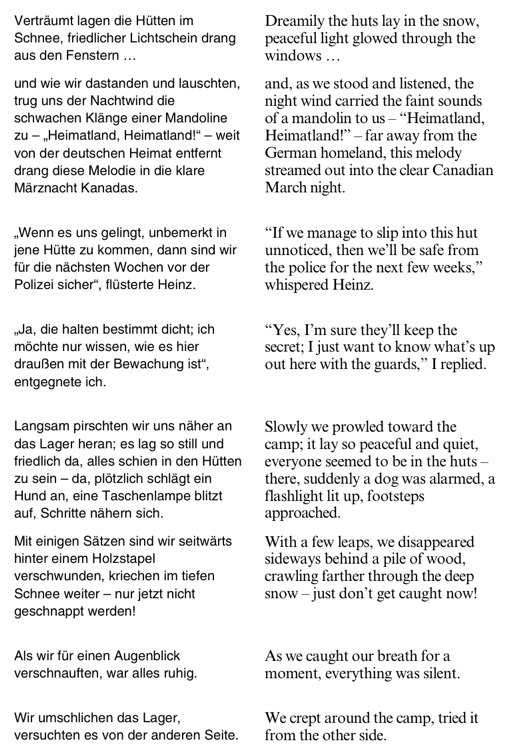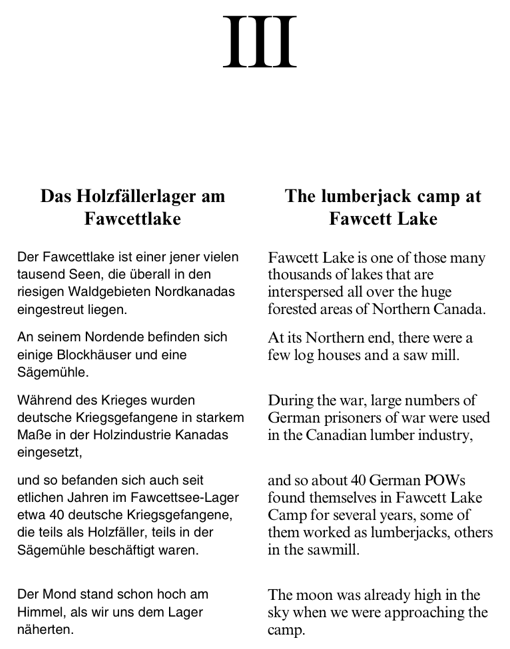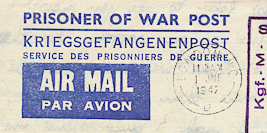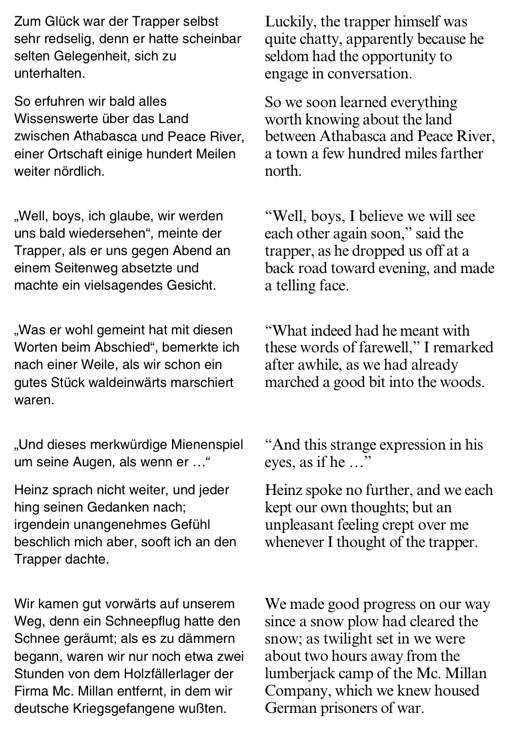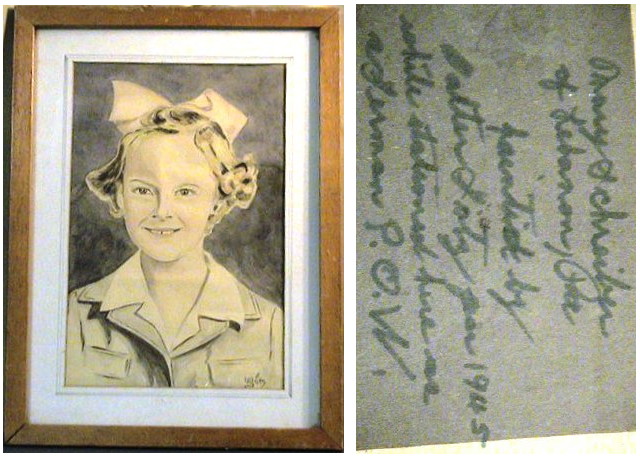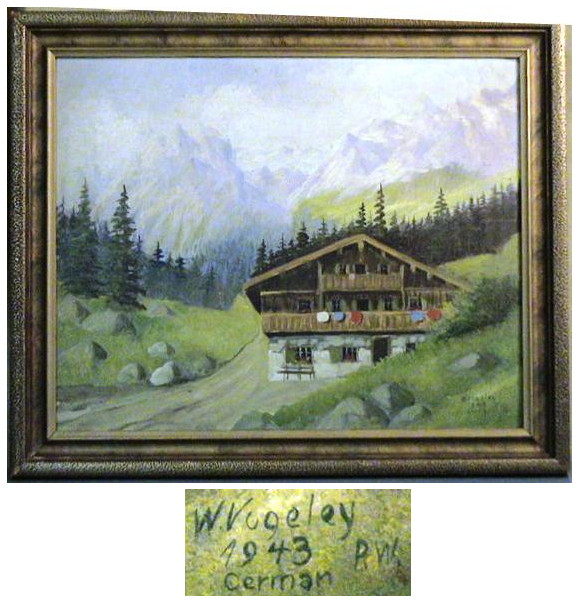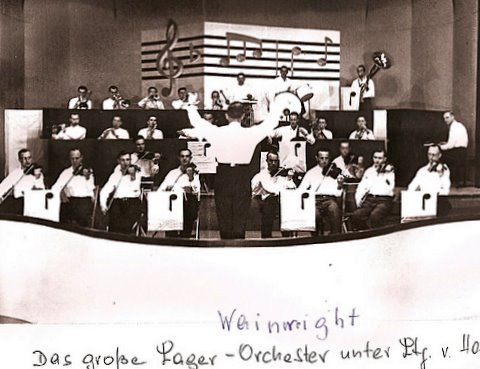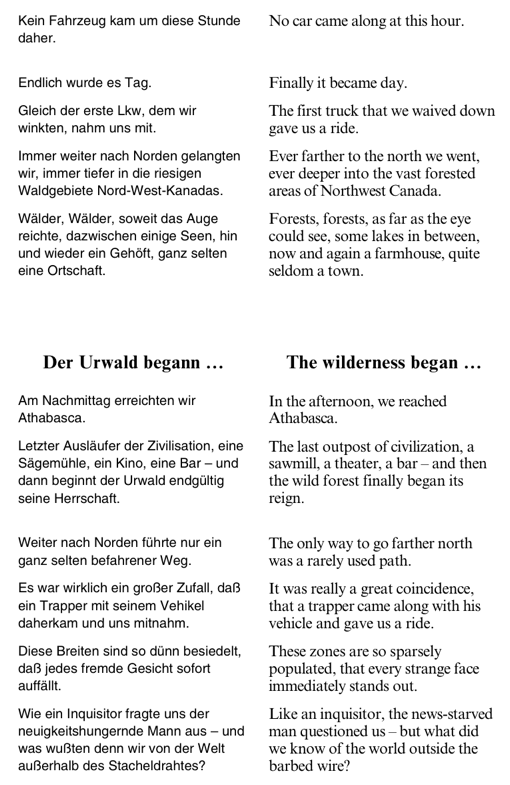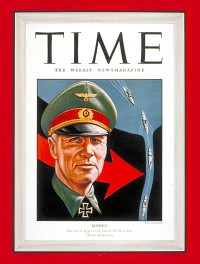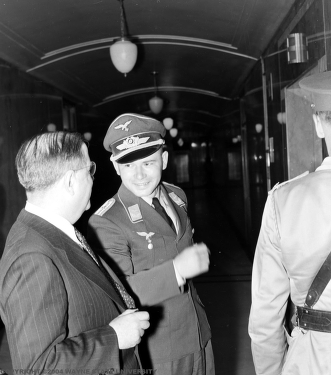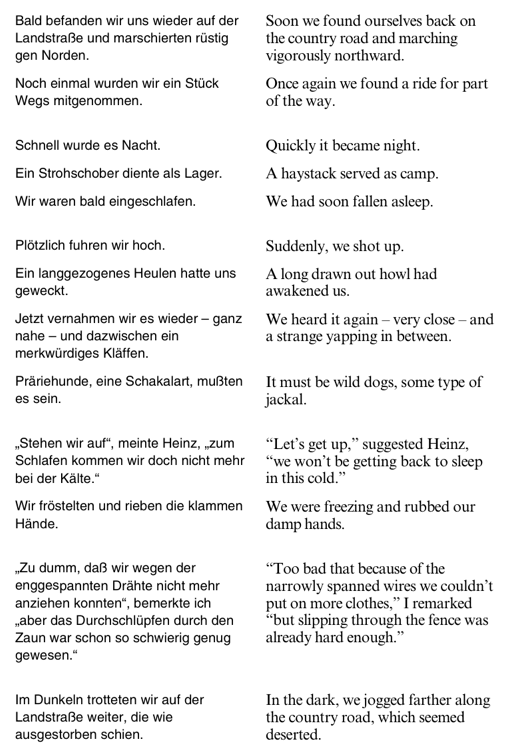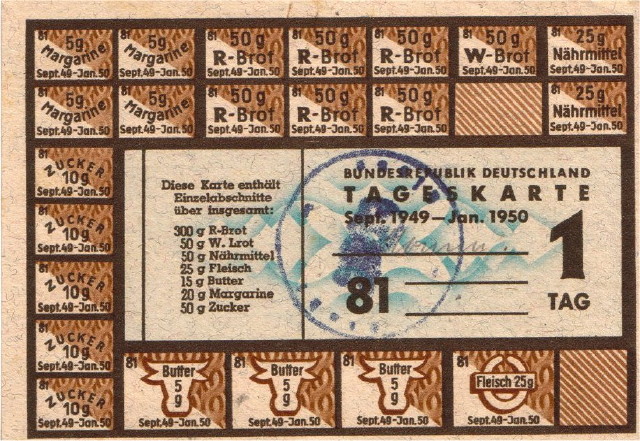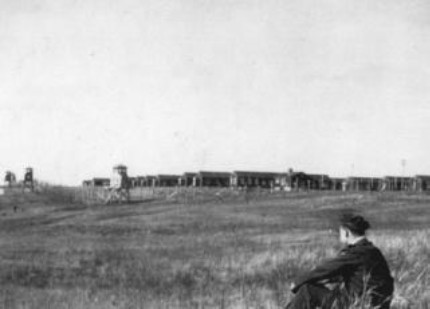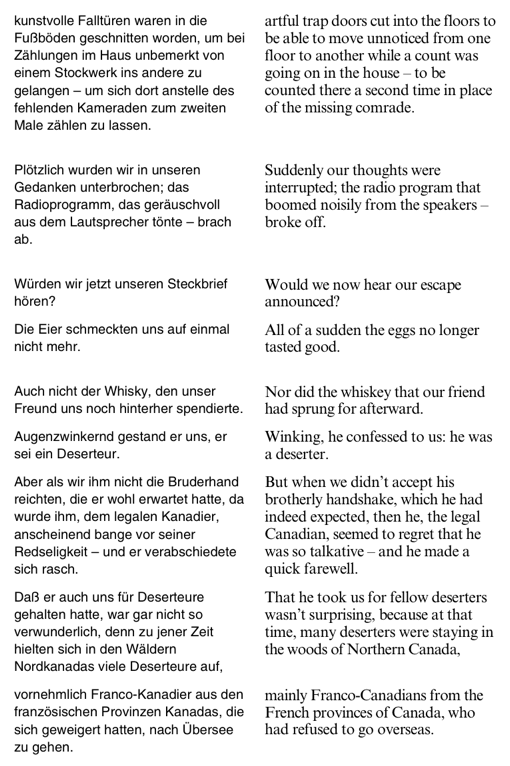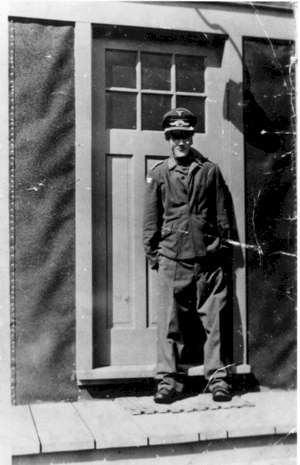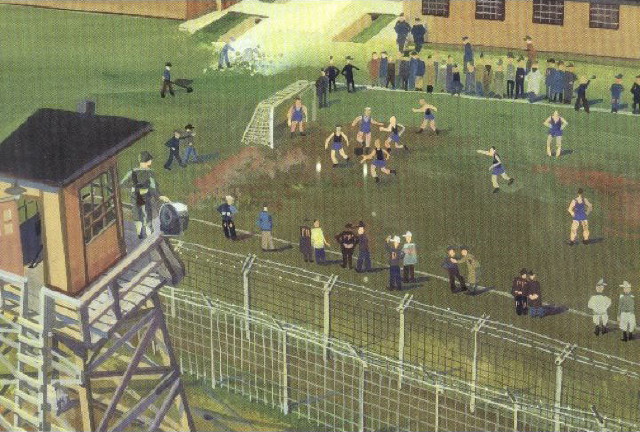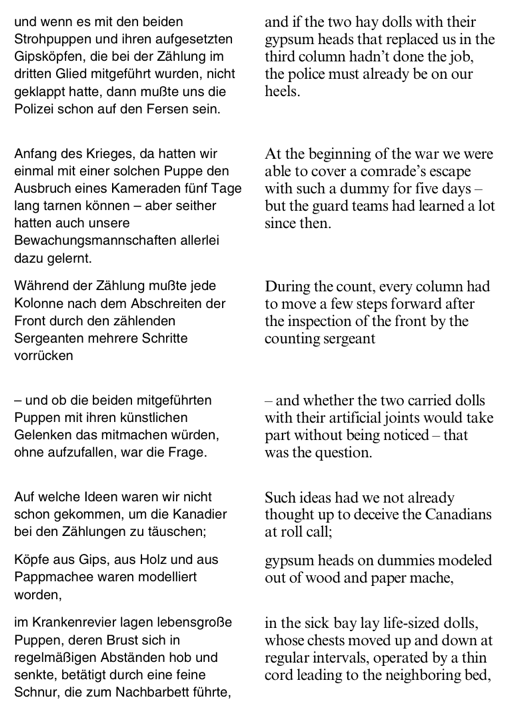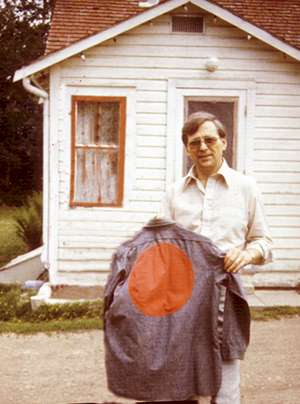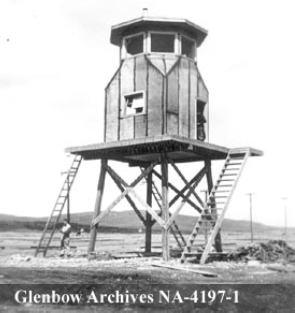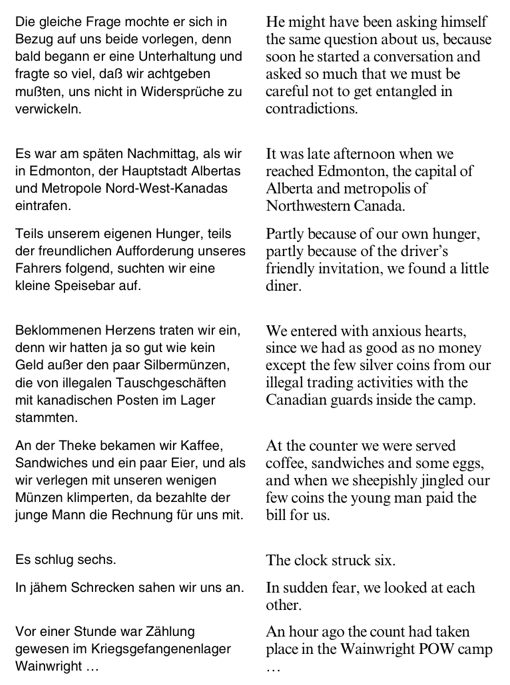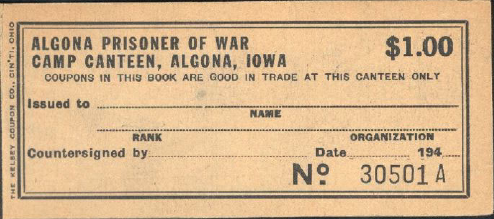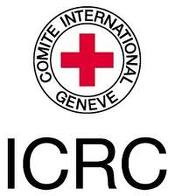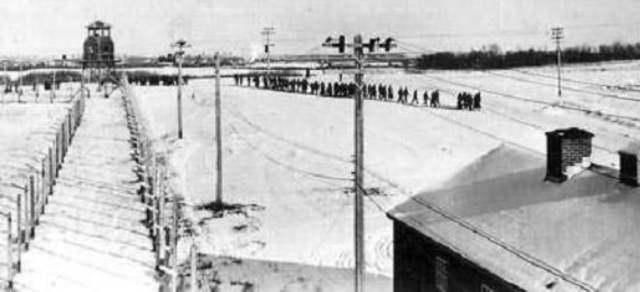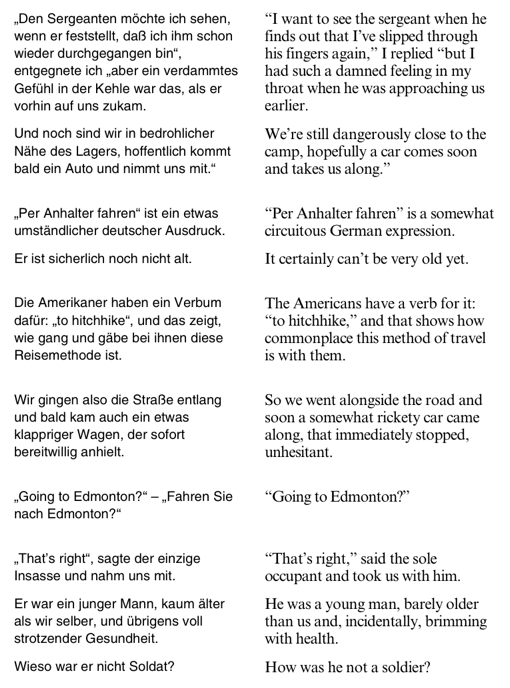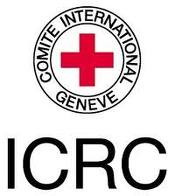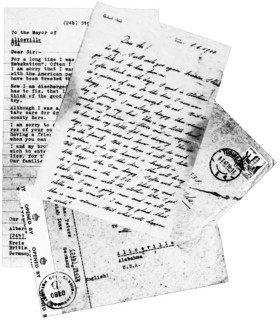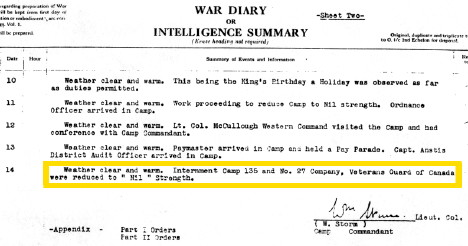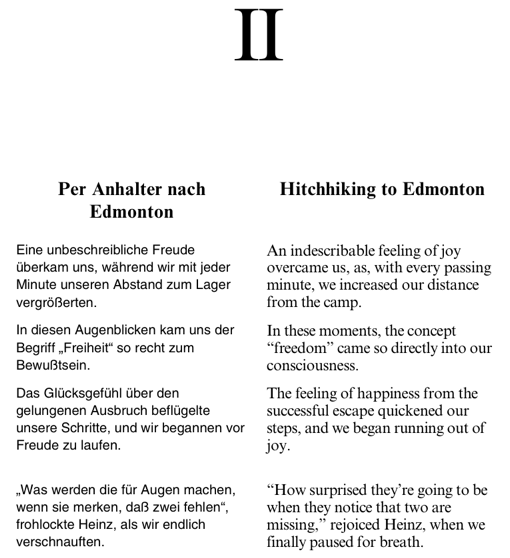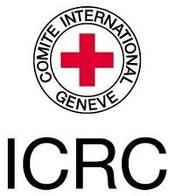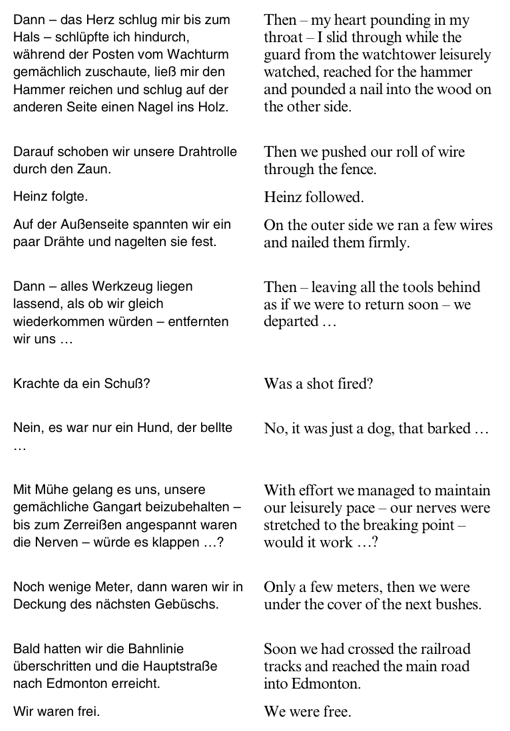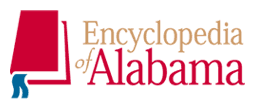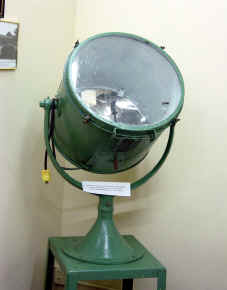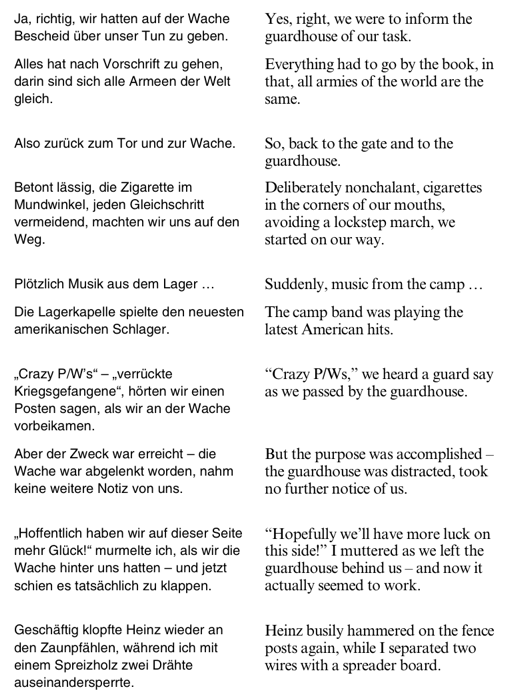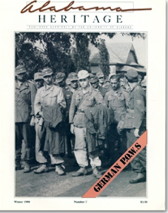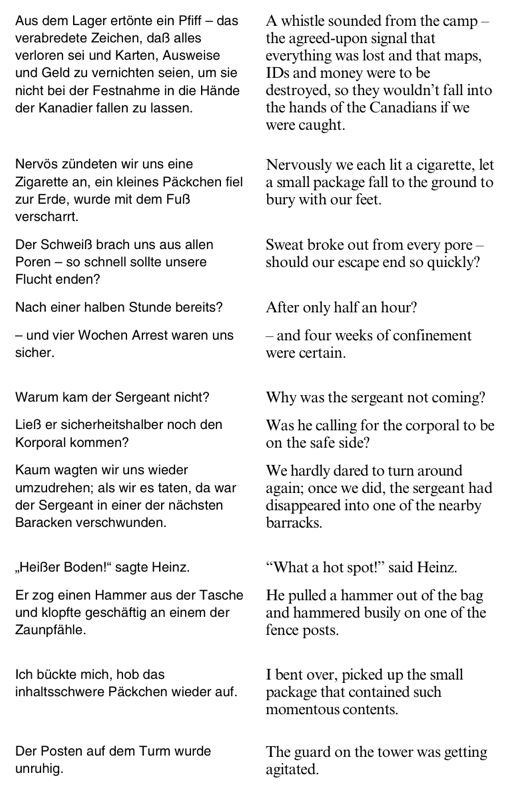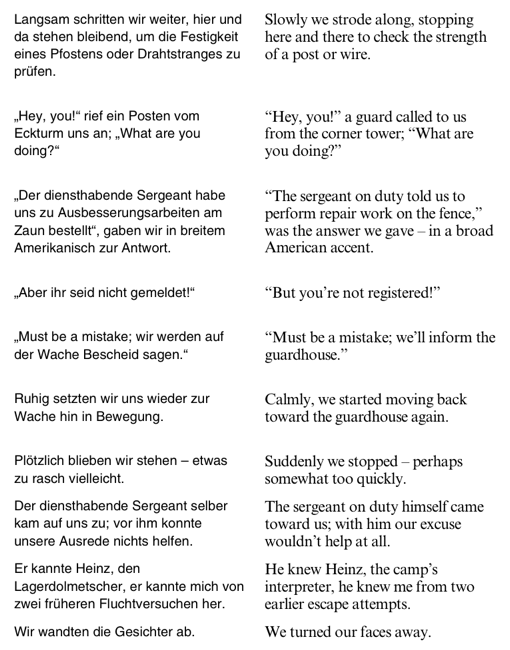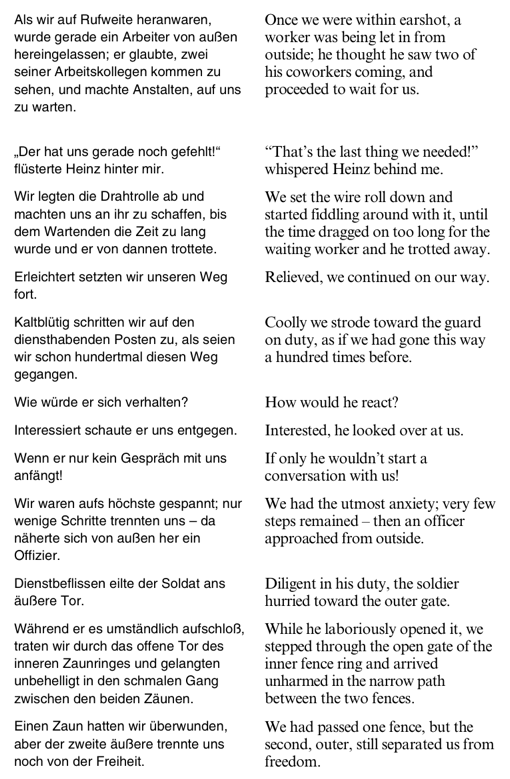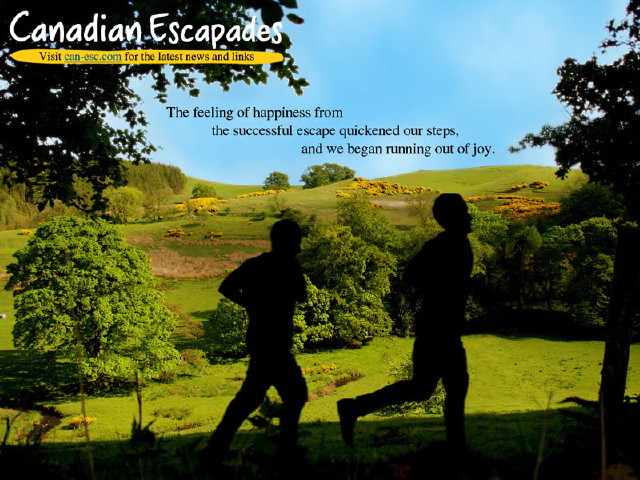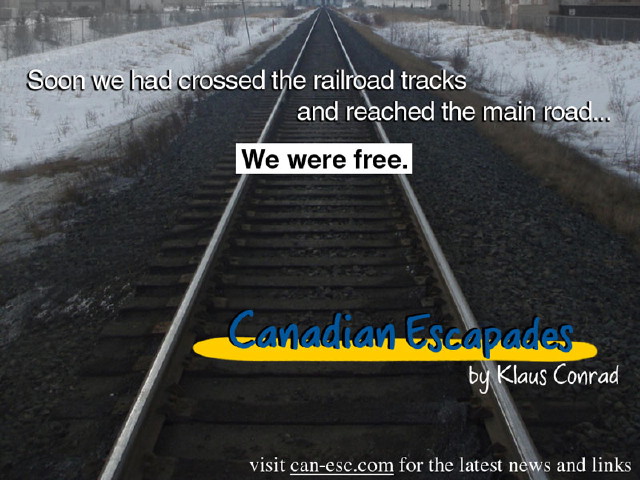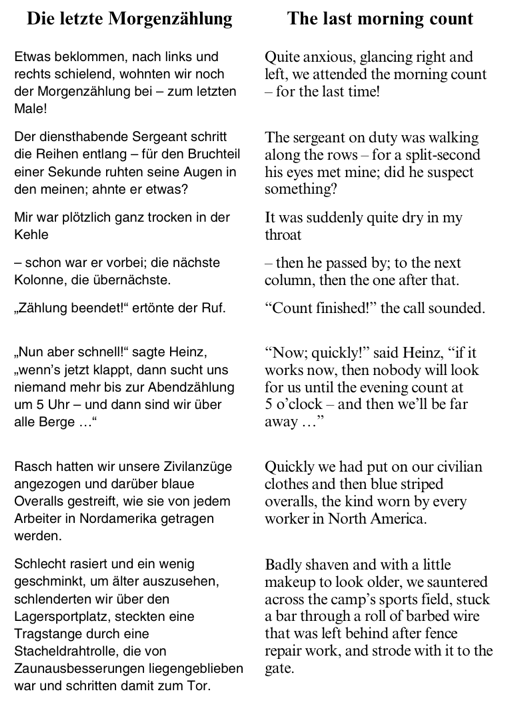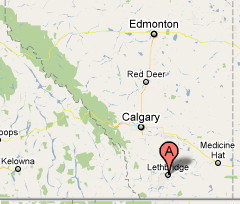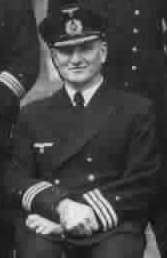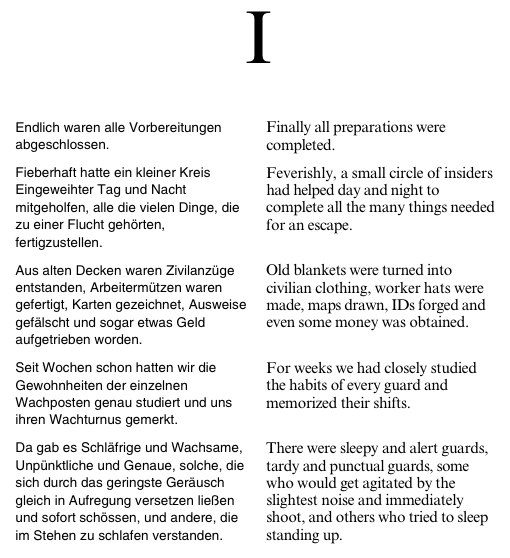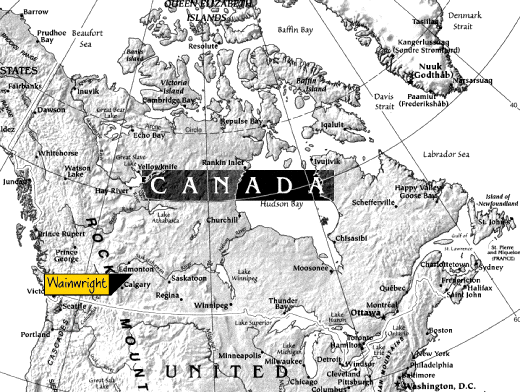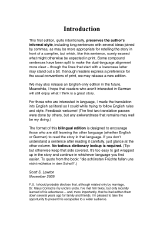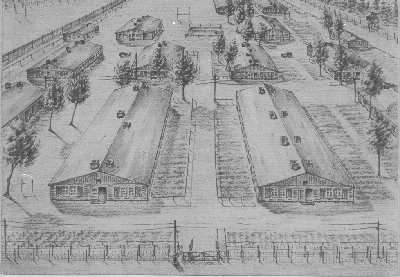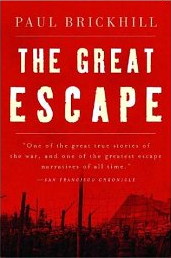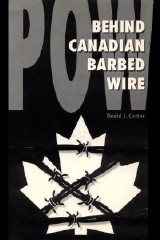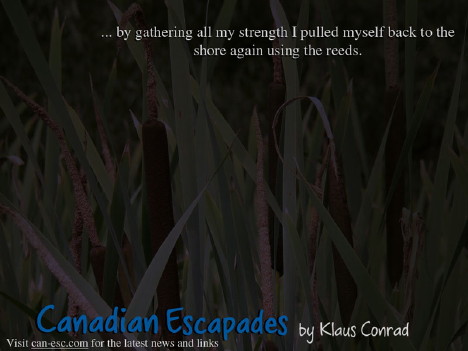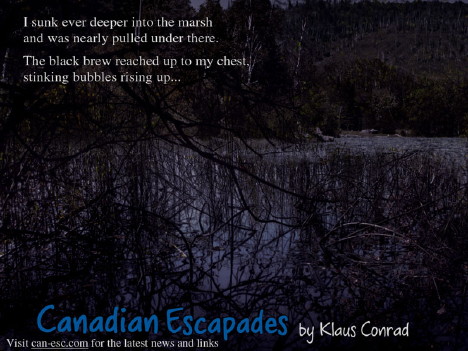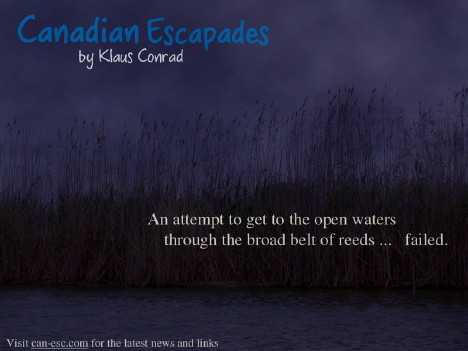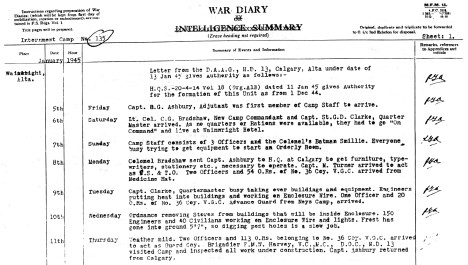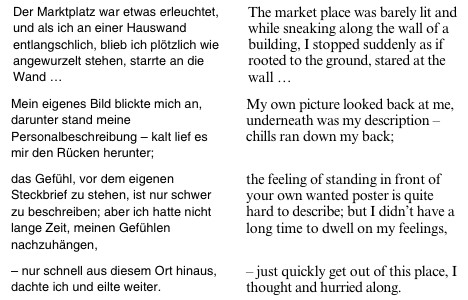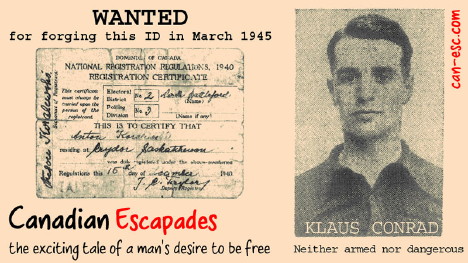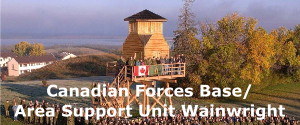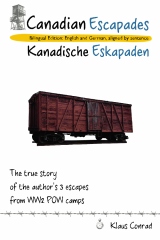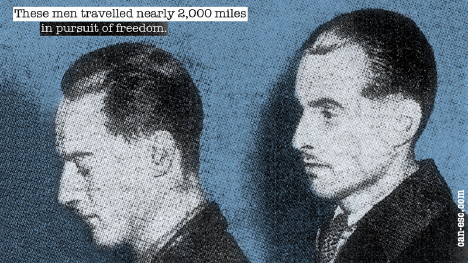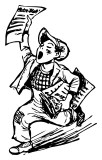
|
|
Entries written by Scott
Help me send copies of Canadian Escapades to libraries and schools via my new Give 1 - Get 1 project at Indiegogo. When you back the project for $15 or more, you get one book and I will give one book to a library or school. (That includes free shipping in the US, so costs a bit less than buying the book at retail.) I first learned of the "Get 1 - Give 1" approach via the One Laptop Per Child project (OLPC) -- and I've long planned something similar for Canadian Escapades. It's now here! Indiegogo and Kickstarter are the two leading "crowdfunding" sites. They allow individuals to fund projects, products & people based on some combination of pre-payment, extra perks/rewards (a thank-you card, t-shirt, etc.), and simple generosity. It's a brilliant way to enable creators to overcome the initial funding hurdles -- and for individual backers to become part of the process and then get something that may otherwise never have come into existence. While "Give 1 - Get 1" isn't directly related to crowdfunding, I think they're a natural fit. It provides an easy way to share what you like. I took a break from the blog to work on other formats for the book. I'm happy to announce that Canadian Escapades is now available as an ebook for Kindle! [Update: the link now points to Amazon for the Kindle edition.] Denis at Fifobooks let me know that our 2-column format would work fine on most ereaders, and did some of the format conversion and testing. As thanks, the ebook is available there exclusively at launch. We'll add other outlets soon. I would guess that Canadian Escapades is the first bilingual ebook with side-by-side alignment by sentence. If anyone has links and/or screenshots for other dual-language ebooks, please send them along. Pricing:
If you're stopping by for the first time, please check out the details on our home page, use the nav bar above for a preview, and see what you think of our video trailers and posters. If you have questions, please contact us. William G. (Bill) Hillman runs a large military tributes site and is the Webmaster of the Commonwealth Air Training Plan Museum and the related "Official Publication of the RCAF Ex-Air Gunners": Short Bursts edited by John Moyles from March 1983 through December 2007. To tie 2 threads together, here are several contributions from Bob Henderson:
(*) An amusing note:
Bob Henderson also co-authored a book in 1993: German Prisoners of War in Canada and Their Artifacts, 1940-1948 Details from AirMuseum.ca:
There's a listing at Amazon but no copies available there or via AbeBooks. Chris Madsen is also the author of another book on the period: The Royal Navy and German Naval Disarmament 1942-1947. Robert J. (Bob) Henderson turned his collection of artifacts into the "Homefront Archives & Museum". AirMuseum.ca has some background:
Follow the link to read more. Bob has graciously sent me some additional material on one of Klaus Conrad's escapes, which I will post to the blog at some point. Bob's contact info:
Homefront Archives & Museum
6015-5th Ave. Regina, SK S4T 6V4 Canada (306) 543-5822 homefront@sasktel.net The "Wainwright District" site includes "The Camp Wainwright Story" with several additional pages of information about the POW camp: January 1945 to June 1946 - by Marsha Scribner; Pages 37-44 excerpted from her book Transitions. We Meet Again - by Erika Foley, with details on a visit by former POW Hansgeorg Mertsch. Among other tidbits:
POW Collector Visits Wainwright covers a visit by collector Robert (Bob) Henderson and his brother Brett, with Captain Kevin Winfield of the Wainwright base, and then former guard Leo Hamson and former POW Siegfried Osterwoldt. The Enemy Within discusses the documentary by Eva Colmers. Buffalo National Park News Stories features clips from 1909-1921. And of course: Recollections of a Guard Officer at POW Camp 135 by Leo Hamson, which we featured earlier. Und nach wenigen Minuten erhielten wir trockene Kleider und hängten unser nasses Zeug an den warmen Ofen. Inzwischen war Zählung in den Hütten; kaum war sie beendet, da huschten ein paar Gestalten zum Waschhaus, brachten zu essen und zu trinken - und dann saßen wir noch lange beisammen, und das Erzählen nahm kein Ende. "Da habt ihr wirklich Schwein gehabt, daß ihr nicht in die erste Hütte hineingingt - da wohnen nämlich kanadische Zivilarbeiter; und wenn erst einer von euch weiß, dann ist es im Nu herum - bei den wenigen Neuigkeiten hier oben", meinte er. "Und was habt ihr weiter vor, wenn die Suchaktion der Polizei nachgelassen hat?" fragte ein anderer. "Zunächst in die Staaten und Geld verdienen; und dann an die Ostküste in einen der Häfen, wo täglich Schiffe nach Europa abgehen. Sind wir aber erst in Europa, dann wird sich ein Weg nach Deutschland finden lassen." Es war lange nach Mitternacht, als wir uns endlich zur Ruhe legten. After just a few minutes we had dry clothing and were hanging our wet stuff over the warm stove. Meanwhile the count was going on in the huts; as soon as it was over a few figures scurried over to the wash house bringing food and drinks - and then we sat together for quite awhile, and the story telling wouldn't come to an end. "You were quite lucky not to enter the first hut - because Canadian workers live there; and if one of them knew about you, then it would have been over in a moment - with the news being very sparse up here," he said. "And what are your plans once the police search has ceased?" asked another. "At first to the States and earn some money; and then to the East Coast to one of the port cities where ships depart daily to Europe. Once we're in Europe, we'll find a way to get to Germany." It was long after midnight when we finally lay down to rest.
Treatment of Allied POWs (at least those from the West) in German POW camps was largely professional. Here's the text of an excerpt (7:10-7:28) from the above interview with Walter Morison, a British former POW held at Sagan and then Colditz.
For more information about his escapes and daily camp life, see his book Flak and Ferrets: One Way to Colditz. (Enlisted men and those in larger camps probably had it rougher, especially in terms of food. Things also got considerably worse towards the end of the war -- and even in the immediate aftermath.)
The Allied POWs built a glider in one of the attics. It was never discovered by the guards, nor tested. But it was quite an inspiration, as illustrated above. The watercolor on the left was painted by British POW Major W. F. Anderson in 1941-1942. The photo on the right shows a similar view from 1995, after the castle had been restored closer to how it looked during medieval times. The accompanying text describes how music was used as a signal during an escape. The site features a small art exhibition and other information, often in English and German. Mario Bosch has a great photo gallery, though his image of the castle as it was during the war (and several decades after) is on a different page. As a postscript to our series on Leo Hamson, here are a few additional details. Archives Canada includes a page on Ruth and Leo Hamson. Some excerpts:
Follow the link for more details. Ruth wrote a book: Staying Alive - Tracing the Adventures of George Cornwell & W. Scott Pitzer. I found details via a used copy available from Gallowglass Books and at AbeBooks
"Dasselbe. Durchgegangen von Wainwright und seit zwei Tagen unterwegs." "Großartig. Anständige Entfernung bis hierher; wie habt ihr das so schnell geschafft?" "Gehitchhiked, hatten viel Glück; und wollten hier gern ein paar Wochen unterschlupfen, bis die ärgste Polizeisuche vorbei ist; wird das gehen?" "Selbstredend; gleich kommt der Lagerführer; ein prima Kerl, mit dem müßt ihr das Nähere besprechen." Da trat er schon ein. Schnell orientierten wir ihn über uns und unsere Absichten. "Geht in Ordnung, heute nacht bleibt ihr mal im Waschhaus, morgen sehen wir weiter. Und jetzt schnell, denn um 11 ist Zählung - unser Sergeant ist ziemlich genau, gleich wird er kommen." Schon wurden wir in die nächste Hütte, das Waschhaus, geleitet. "Aber ihr seid ja völlig durchnäßt. Wartet, gleich komme ich wieder." "The same. Escaped from Wainwright and on the run for two days." "Magnificent. That's a fair distance to here; how did you make it so quickly?" "Hitchhiked, had lots of luck; and would like to take cover here for a few weeks, until the worst of the police search is over; would that be ok?" "Of course; the camp leader will come soon; a great guy, you'll have to discuss the details with him." At that moment, he entered. Quickly we informed him about us and our intentions. "That's fine, tonight you can stay in the wash house, tomorrow we'll consider further. And now hurry, because there's a count at 11 - our sergeant is very precise, he will come soon." We were guided to the next hut, the wash house. "You guys are completely soaked. Wait, I'll be right back." Colditz was also the subject of several movies and TV series, including (per Wikipedia): The Colditz Story (1955):
Amazon.com lists a Region 2 DVD of the film (which may not work in North America). TV: (1972-1974):
TV: (2005) ... though the most interesting comment is on the main Oflag IV-C page:
(The image isn't related to the movie or TV series; I just wanted to include a pre-restoration view.)
YouTube includes several interesting videos on Colditz, including several by "dewARTvideo". Here's one that provides a good overview. There were numerous successful Allied escapes from the (supposedly) high security POW "camp" in Colditz Castle (overlooking the town of Colditz in the German state of Saxony, which became part of East Germany after the war). Wikipedia covers the attempts with links to other details. Mario Bosch has a long list of Colditz books in his collection -- spanning several languages. One of the originals, Pat Reid's 1952 "Escape from Colditz" is available from Archive.org for those with an encryption key from the Library of Congress' National Library Service for the Blind and Physically Handicapped. For the rest of us, Archive.org offers a free download (in several formats) of "Colditz: The German Side of the Story" (1962), an English translation of a book by Reinhold Eggers, the German Security Officer at Colditz. Here is final part in our series of recollections by Canadian Lt. Leo L. Hamson, regarding his time as a guard at the Wainwright POW camp. (minor typos corrected) (The full set of Recollections is back online, with photos.) EpilogueLong years passed. It was not until the fall of 2001 that the National Film Board of Canada asked me to participate in a film by German-born film-maker Eva Colmers of Edmonton, along with a number of former German POWs she had located. Some of them have since passed away. It was a stunning moment on Dec 21, 2001 when director Eva Colmers brought me face-to-face for the first time in 56 years with former Oberleutnant Siegfried Osterwoldt, and had us shake hands on camera. Unknown to each other, we had been living in Edmonton for many years. Now we are close friends, trying to make up for lost time. Titled “The Enemy Within” these are the stories of German prisoner-of-war camps in Canada told in our own words. The film opens in Regensburg, the lovely old German city on the Danube, and the original home of Eva Colmers. She went back to interview her father, a former POW in Lethbridge. As a child, Eva had heard her father many times speak gratefully of the humane and very correct treatment he had received as a prisoner of the Canadians. It was this memory that had inspired Eva Colmers to make this historic film. Also present at the filmed meeting in Regensburg was Eva’s uncle, who had been taken prisoner on the Eastern Front where millions died and where the soldiers of neither side had any protection from the Geneva Convention. At Stalingrad and countless other battles on hundreds of miles of battlefront, hundreds of thousands of exhausted German soldiers fell into Soviet captivity. Only a very small number survived execution, starvation, and years of brutal slave labour to see their homeland again. The voice of Eva’s uncle chokes with emotion as he recalls his determined struggle to survive and see his family again. The contrast in the experience of the two brothers is profound beyond words. Large numbers of those held captive in Canadian camps were so impressed with their treatment that they could hardly wait to return to make Canada their home. One wonders if any former prisoners of the Soviets did likewise! Few Canadians today are aware of this episode in our history. After seeing the theatre screening of the film, my academic friend Dr. Don Kvill declared, “That made me really proud to be a Canadian!” Indeed, we should take pride in the fact that in those dark and desperate times when other nations lost their humanity and forgot the meaning of civilized behaviour, we did not. War and hatred go hand in hand. It is the real test of any people when they can treat their defeated enemies with humane decency whether they have signed a convention or not. “The Enemy Within” won the top award in an international “World Visions” festival of documentary films in competition with 66 other films. It received its television premiere on the History Television channel September 12th, 2004. The rest, as they say, is history. Copyright 2004 by Leo Hamson; used with permission Eine Hütte lag ganz zwischen den Bäumen. Mit angehaltenem Atem näherten wir uns dem Fenster. Wir erblickten einige Männer in Holzfällerkleidung um einen Tisch sitzend und sich unterhaltend. Verstehen konnten wir nichts - schade. "Wenn wir nur wüßten, ob es kanadische Zivilarbeiter oder deutsche Kriegsgefangene sind", raunte ich Heinz zu. Vorsichtig schlichen wir zur nächsten Hütte. Plötzlich geht die Tür auf, ein Mann tritt heraus und erblickt uns im vollen, herausflutenden Lichtschein. "Nanu, was wollt ihr denn hier?" spricht er uns auf deutsch an. Fast wären wir ihm um den Hals gefallen. Schnell traten wir in die Hütte, zogen den Mann hinter uns hinein und schlossen die Tür. "Gott sei Dank - also ihr seid doch deutsche Kriegsgefangene", stieß ich hastig hervor. "Na klar, was denn sonst? Und wer seid ihr?" One hut lay right between the trees. With bated breath we neared the window. We spotted some men in lumberjack clothes sitting around a table and talking. We couldn't understand anything - too bad. "If only we knew whether they are Canadian workers or German POWs," I murmured to Heinz. Carefully we crept to the next hut. Suddenly the door opened, a man stepped outside and spotted us in the full light flooding out from the hut. "Nanu, was wollt ihr denn hier?" - "Hey, what do you want here?" he addressed us in German. We almost hugged him. We quickly entered the hut, pulled the man inside behind us and closed the door. "Thank God - so you are in fact German POWs," I said hastily. "Of course, what else? And who are you?"
Here are some additional image credits from the copyright page of the book (with the links spelled out): The pocket watch and barbed wire snippet were posted to Clker by OCAL. The site is a very useful source of public domain clip art. The map of North America is adapted from the CIA World Factbook. As with most US Government publications, the original is in the public domain. Anything in the public domain may be used and modified with no restrictions, and no credit given. (However, it's still polite to give credit.) A creative work is "public domain" either if the copyright has expired (e.g. in the US, a book printed in the US prior to 1923) or if the creator has specifically relinquished all rights and placed it in the public domain. Many countries grant copyright for the life of an author plus 70 years (in Europe, Australia, etc.) or 50 years (in Canada and elsewhere). Note that images and sound recordings generally have their own complicated rules for when copyright expires. Some useful links:
Yesterday's post mentioned the CC-BY license that covers most of the images that we use on the blog and elsewhere. Creative Commons is a non-profit organization that developed and promotes a family of licenses to provide an easy way for creators to specify what others may or may not do with a creative work. Each license has a simple abbreviation that adds a specific constraint:
Some combinations: "cc by", "cc by-nc", "cc by-nd", "cc by-sa", "cc by-nc-sa", "cc by-nc-nd". The set of options is generally well thought out. However, there's also a potential source of confusion. Merely saying that a work is covered under a Creative Commons license says very little. The details are critical, and it's vital to check which cc license before proceeding. It would be helpful if the organization played a stronger role in encouraging people to post the exact license rather than just using the umbrella term. There's also one useful license option that is missing (or at least unclear): requiring that any changes to the actual work are shared, but allowing the original or derivative work to be incorporated into a larger work without forcing the larger work into a certain license. (Model: the LGPL for software.) A tidbit: in 2009, Wikipedia migrated from the GFDL to cc by-sa. I finally got a chance to upload the book posters to Flickr, with links to the original images that we adapted. All of our 'poster' blog posts include an image credit and link, but I wanted to include one at the source too. (Still TBD: additional images used in our book trailers.) And, here are two credits that are listed on the copyright page of the book (with the links spelled out), but haven't yet appeared on the blog: The following 2 people were kind enough to make their photos available to all under a Creative Commons "by" attribution license, including taking the risk that adaptations do not do justice to the originals.
Thanks also to Flickr for providing a CC-BY search page.
Here is part 9 in our series of recollections by Canadian Lt. Leo L. Hamson, regarding his time as a guard at the Wainwright POW camp. (minor typos corrected) (The full set of Recollections is back online, with photos.) A Face From the Distant Past - A Strange EncounterYears passed, memories receded, and I never met anyone again who had been at Wainwright on either side of the wire - until an amazing encounter in 1967. That year I was wandering Europe on my own, marvelling at the incredible recovery from the devastation of the war. I had gone down the Rhine by ship to Koblenz and transferred to a smaller boat on the Moselle, bound for Trier to see the impressive Roman remains there. I was the only passenger for the first part of that Sunday morning as we stopped at many pretty villages to take on or discharge freight. Alone, I sipped glasses of Moselle wine as I admired the stunning scenery. Then at one town a boisterous group obviously on an outing swarmed aboard laden with picnic baskets. Soon an accordion was unpacked and everyone joined in rollicking German songs. They noticed me watching from a corner table and insisted that I join them, fascinated to learn that I was a Canadian. One man, about my own age, fetched the accordion case and used it as a drum. Something about him, something vaguely familiar, held my attention. He had a great scar on his face as though part of his jaw was missing. During a lull in the festivities, he approached me on the outside deck and said that he had been in Canada once and had enjoyed our hospitality. Guardedly, I asked him when and where. “I was a prisoner-of-war,” he grinned, “In Alberta.” I sucked in my breath. “In what camp?” “Wainwright” Then I remembered the Luftwaffe fighter pilot who had part of his jaw shot away just as he bailed out of his crippled Messerschmitt over England. “Do you remember,” I exclaimed, “how many times we stood as close to each other as we do now in the daily prisoner count at Wainwright?” He stared at me for a long moment and then seized me by the arm. “Come! We must have a drink!” Copyright 2004 by Leo Hamson; used with permission Verträumt lagen die Hütten im Schnee, friedlicher Lichtschein drang aus den Fenstern ... und wie wir dastanden und lauschten, trug uns der Nachtwind die schwachen Klänge einer Mandoline zu - "Heimatland, Heimatland!" - weit von der deutschen Heimat entfernt drang diese Melodie in die klare Märznacht Kanadas. "Wenn es uns gelingt, unbemerkt in jene Hütte zu kommen, dann sind wir für die nächsten Wochen vor der Polizei sicher", flüsterte Heinz. "Ja, die halten bestimmt dicht; ich möchte nur wissen, wie es hier draußen mit der Bewachung ist", entgegnete ich. Langsam pirschten wir uns näher an das Lager heran; es lag so still und friedlich da, alles schien in den Hütten zu sein - da, plötzlich schlägt ein Hund an, eine Taschenlampe blitzt auf, Schritte nähern sich. Mit einigen Sätzen sind wir seitwärts hinter einem Holzstapel verschwunden, kriechen im tiefen Schnee weiter - nur jetzt nicht geschnappt werden! Als wir für einen Augenblick verschnauften, war alles ruhig. Wir umschlichen das Lager, versuchten es von der anderen Seite. Dreamily the huts lay in the snow, peaceful light glowed through the windows ... and, as we stood and listened, the night wind carried the faint sounds of a mandolin to us - "Heimatland, Heimatland!" - far away from the German homeland, this melody streamed out into the clear Canadian March night. "If we manage to slip into this hut unnoticed, then we'll be safe from the police for the next few weeks," whispered Heinz. "Yes, I'm sure they'll keep the secret; I just want to know what's up out here with the guards," I replied. Slowly we prowled toward the camp; it lay so peaceful and quiet, everyone seemed to be in the huts - there, suddenly a dog was alarmed, a flashlight lit up, footsteps approached. With a few leaps, we disappeared sideways behind a pile of wood, crawling farther through the deep snow - just don't get caught now! As we caught our breath for a moment, everything was silent. We crept around the camp, tried it from the other side. Although I mentioned the Veterans Guard before, the article linked yesterday has a description that's worth a post by itself. (paragraph breaks added)
(The image is from a history page that mentions the Veterans Guards, and isn't related to the Lake of the Woods article.) Several local museums have made an effort to collect material relating to the history of German POWs in Canada and the US. For example, the Thunder Bay Historical Museum Society features a page on The Art of Hans Krakhofer. Some excerpts:
There's more in the article, including a sidebar with several other drawings. Last Friday's book excerpt mentioned that many POWs worked in the logging industry. Fawcett Lake is in Alberta; here's some information from the other side of Canada.
It's a long article, with lots of historical details.
Here is part 8 in our series of recollections by Canadian Lt. Leo L. Hamson, regarding his time as a guard at the Wainwright POW camp. (minor typos corrected) (The full set of Recollections is online, with photos.) The Long Road to RepatriationBy March 1946 operations were winding down at Wainwright, and drafts of POWs were being shipped out on the long journey eastward and eventually back to the UK and the large POW holding camp at Lodgemoor near Sheffield. Many had accumulated substantial amounts of personal effects that they could not take with them, such as phonograph records, but mostly things they had made themselves - handicrafts, works of art, suitcases and the like. What they could not take they would have to dispose of. Their only hope of salvaging any value from it was to sell it to the Canadian camp staff for whatever they could get for it. They assembled it in what today would be like a garage sale. For trivial sums I and other camp staff officers purchased a good deal of it, sometimes bidding against each other for the more desirable items. I bought a water-colour of one of the mediaeval gates of Rothenberg-ob-Tauber in Bavaria, a plaster wall plaque of one of Columbus’ ships by one of the few survivors of the Bismark, a well-crafted suitcase made of scraps of wood, a wooden chest as a toy box for my infant son, a leather-covered hand-wound Telefunken portable record player from Col. Hauk, the senior German officer, and a large collection of 78 RPM classical records in pristine condition in fine albums. Many of the POWs had written their names and POW numbers in the albums, crossing out the preceding name as the recordings were passed around as a sort of lending library. Phonograph needles were scarce, and they showed me how they made their own from the thorns of wild roses growing in the area. They sharpened these with sandpaper, and being softer than steel needles, they were kinder to the records. When we were living in our isolated veterans’ settlement in the north with no electricity or access to recreation or entertainment, our group would meet in one of the rough houses we built and after a hard day’s work crank up Colonel Hauk’s Telefunken 78 RPM record player and listen to these prized recordings of classical music and opera, some of them sent from Germany. It enabled us to cling to some vestige of culture as we hacked our homesteads out of the wilderness of Northern Alberta. About five years ago, when I discovered that there was a museum in the old Wainwright railway station devoted to the vanished POW camp, I donated many of these items to their meagre collection, including my Army uniform and some items of military equipment that I had stored away all these years. I still have the wall plaque and most of the record collection in excellent condition. Being 78 RPM they are never played now. Copyright 2004 by Leo Hamson; used with permission Chapter III Das Holzfällerlager am Fawcettlake Der Fawcettlake ist einer jener vielen tausend Seen, die überall in den riesigen Waldgebieten Nordkanadas eingestreut liegen. An seinem Nordende befinden sich einige Blockhäuser und eine Sägemühle. Während des Krieges wurden deutsche Kriegsgefangene in starkem Maße in der Holzindustrie Kanadas eingesetzt, und so befanden sich auch seit etlichen Jahren im Fawcettsee-Lager etwa 40 deutsche Kriegsgefangene, die teils als Holzfäller, teils in der Sägemühle beschäftigt waren. Der Mond stand schon hoch am Himmel, als wir uns dem Lager näherten. The lumberjack camp at Fawcett Lake Fawcett Lake is one of those many thousands of lakes that are interspersed all over the huge forested areas of Northern Canada. At its Northern end, there were a few log houses and a saw mill. During the war, large numbers of German prisoners of war were used in the Canadian lumber industry, and so about 40 German POWs found themselves in Fawcett Lake Camp for several years, some of them worked as lumberjacks, others in the sawmill. The moon was already high in the sky when we were approaching the camp.
"Why? Why does a POW escape anyway, when he suffers no physical emergency and everything is done to ease psychological stress? Why does he trade a life with adequate food in well heated shelter for the danger and hardship of an almost impossible escape?" (pages 84-85) Image adapted from ian_munroe at Flickr. Music from Bach's Toccata Adagio Fugue: http://www.musopen.com/music.php?type=piece&id=468 Here is part 7 in our series of recollections by Canadian Lt. Leo L. Hamson, regarding his time as a guard at the Wainwright POW camp. (minor typos corrected) (The full set of Recollections is back online, with photos.) A Bitter Memory of a Personal FailureI struck up a friendship with one officer whom I saw frequently because he worked in the Orderly Room. He spoke perfect English, the result of being educated in England. He was Oberleutnant Hans Bauermeister, and had not been a POW as long as most of the others because he was captured in Normandy in June 1944. He had a great desire to stay in Canada and asked me how this could be arranged. I told him that unfortunately we could not just fling open the gates and let them walk away now that the war was over. They would have to be transferred back to the custody of the British in England, and eventually repatriated to their homeland and demobilized. Then perhaps they could apply and join the queue of millions of other homeless refugees and civilian war victims wanting to emigrate to Canada and other parts of the world. I also told him that he would have to accept the fact that there would be some bitterness toward members of the armed forces of our recent enemies, and that they would be at the bottom of the list until those feelings gradually melted away. He was crestfallen when I told him this, but clearly understood. He was a cultured and thoroughly decent chap, and I felt really sorry for him. He showed me photos of his elegant former home, a villa near Potsdam with chandeliers and grand piano visible. He also showed me a photo of his wife, an extraordinarily beautiful woman whom he said had been a film actress. He said he had learned that his home had been wrecked and looted by Soviet troops and his wife and children had disappeared. I gave him an address where he could reach me when I myself was discharged, and promised that I would provide any assistance I could such as a character reference should he decide to emigrate to Canada. Months later, when I was in a remote wilderness area of the Peace River District with a group of other discharged Canadian officers in a Veterans’ Land Act co-operative land development project, I received a “Kriegsgefangenenpost” (Prisoner-of-War Post) from Lt. Bauermeister mailed from Lodgemoor, the large POW holding camp near Sheffield, England. The finely-crafted writing on the camp-issue postcard is almost microscopic. His wife and one son had survived, but while still in Canada he learned that his second son had died a year before. His wife was working on a farm with little food and no money in the Soviet Occupation Zone, struggling to feed the extended family. He begged me to send food parcels to his family, and gave me two addresses - one to his mother in the Russian zone of Berlin, and the other to his brother in the U.S. Zone. He gave me the address of an organization to which I could send money, and they would provide and ship the food parcels. I mentioned this postcard to my ex-officer partners. Today I profoundly regret doing that. The trauma of Normandy was still fresh in their minds. Two of them had been severely wounded - one of them, a major, while getting his tank squadron ashore on D-Day in an action for which he was awarded the Distinguished Service Order. They were outraged that this recent enemy should beg for food from me when millions of victims of the Nazis were starving and homeless. They made it clear that I would be in serious trouble with them if I complied with Bauermeister’s plea. I did not answer it, and put the postcard away with feelings of great discomfort. Some months later I received a lengthy illicit letter from the same camp. He begged me, in any reply I might make, not to refer to the fact that he had written a full letter rather than the officially-allowed post card. I think they were allowed two per month. I cannot imagine why, with the war long over, the British would continue with such harsh restrictions on letter-writing by these lonely men, most of whom had been prisoners for years far from their homeland and families. There could be no security threat in their letters, now that Germany had surrendered long before, After all, they were defeated soldiers, not criminals. He remembered fondly the many pleasant conversations we had while working in the Orderly Room at Wainwright POW Camp. He went into some detail about his family and their condition in Germany. He said he had sustained a crushed thumb while working on a farm with other POWs near Sheffield, and was in hospital, greatly chagrinned that after being unscathed in five years of war he should be injured as a POW a year and a half after fighting ended. In this letter he made two remarks about himself that today bring a lump to my throat when I read them - “More and more I have the intention to emigrate with my family and my brother to your country because our future in Germany will be darker and darker and we do not see any hope to live in Europe. Is any chance for this idea in a reasonable space of time for the hated Germans? Please let me know your opinion in this affair. It is very urgent for me.” And… “At last, please remember if you want, and if you have time enough for a man who is unfortunately a German!” Deferring to the strong feelings of my partners with whom I had to live, I did not answer this letter either. Later I received a third letter, this one from Washington D.C. dated 21 Jan 1947. The writer was Herbert William Hirsch, resident in London, but temporarily in Washington on a mission for the British Government. In his surreptitious letter, Hans Bauermeister had advised me that I would be hearing from his old friend and former pre-war boss when Hirsch was director of a large manufacturing concern in Berlin. He had left Germany and moved to London in 1936 (a wise move for him!). He said that Mr. Hirsch would be at liberty to write more about his former employee’s problems than could be written on a POW postcard. The pleas for help were repeated in a very dignified way. This letter too I put away and did not answer. Today, when I look at these letters, my eyes well with tears. How I wish I could turn back the years and set things right! I had turned my back on a man in distress whom I had promised to help. What if he was a former enemy officer? A promise is a promise, and under the officer’s code of honour, it should have been kept. I can rationalize now that conditions had changed, that I and my partners and our families were facing unforseen hardships in a remote wilderness and having difficulty feeding ourselves, and there was the unforgiving attitudes of my fellow-officers who had suffered much on the battlefields of Europe. But that does nothing to diminish my feelings of guilt. I had betrayed a trust for the only time in my life. I have helped numerous people over the years, including some who did not deserve it, but failed one of the most deserving of all for reasons that were weak and invalid. I have often wondered what became of Oberleutnant Hans Helmut Bauermeister. Did he succeed in making a good life for himself and his family in spite of my failure to help him? Did he ever make it back to Canada? Could he still be alive? If we met, how would I explain what happened? I have learned from another former Wainwright POW, Siegfried Osterwoldt, that there is a society of former POWs in Germany and this dwindling group of elderly German veterans meets once a year and keeps a roll of their names. Inquiries do not reveal the name of Hans Bauermeister. He haunts me still. Copyright 2004 by Leo Hamson; used with permission Zum Glück war der Trapper selbst sehr redselig, denn er hatte scheinbar selten Gelegenheit, sich zu unterhalten. So erfuhren wir bald alles Wissenswerte über das Land zwischen Athabasca und Peace River, einer Ortschaft einige hundert Meilen weiter nördlich. "Well, boys, ich glaube, wir werden uns bald wiedersehen", meinte der Trapper, als er uns gegen Abend an einem Seitenweg absetzte und machte ein vielsagendes Gesicht. "Was er wohl gemeint hat mit diesen Worten beim Abschied", bemerkte ich nach einer Weile, als wir schon ein gutes Stück waldeinwärts marschiert waren. "Und dieses merkwürdige Mienenspiel um seine Augen, als wenn er ..." Heinz sprach nicht weiter, und jeder hing seinen Gedanken nach; irgendein unangenehmes Gefühl beschlich mich aber, sooft ich an den Trapper dachte. Wir kamen gut vorwärts auf unserem Weg, denn ein Schneepflug hatte den Schnee geräumt; als es zu dämmern begann, waren wir nur noch etwa zwei Stunden von dem Holzfällerlager der Firma Mc. Millan entfernt, in dem wir deutsche Kriegsgefangene wußten. Luckily, the trapper himself was quite chatty, apparently because he seldom had the opportunity to engage in conversation. So we soon learned everything worth knowing about the land between Athabasca and Peace River, a town a few hundred miles farther north. "Well, boys, I believe we will see each other again soon," said the trapper, as he dropped us off at a back road toward evening, and made a telling face. "What indeed had he meant with these words of farewell," I remarked after awhile, as we had already marched a good bit into the woods. "And this strange expression in his eyes, as if he ..." Heinz spoke no further, and we each kept our own thoughts; but an unpleasant feeling crept over me whenever I thought of the trapper. We made good progress on our way since a snow plow had cleared the snow; as twilight set in we were about two hours away from the lumberjack camp of the Mc. Millan Company, which we knew housed German prisoners of war.
"Why? Why does a POW escape anyway, when he suffers no physical emergency and everything is done to ease psychological stress? Why does he trade a life with adequate food in well heated shelter for the danger and hardship of an almost impossible escape?" (pages 84-85) Image adapted and composited from unplain-jane and jamescridland at Flickr. Music from Bach's Toccata Adagio Fugue: http://www.musopen.com/music.php?type=piece&id=468 Here's a portrait from the same source as yesterday: The Okie Legacy, Volume 8, Issue 39.
(Follow the link to add a comment or contact the current owner.) Text on the back (as best I can read it): "Mary Schreiber of Lebanon, PA painted by Walter Gotz (Götz?) year 1945 while stationed here as a German P.O.W.". I found this oil painting in The Okie Legacy, Volume 8, Issue 39. Here is part 6 in our series of recollections by Canadian Lt. Leo L. Hamson, regarding his time as a guard at the Wainwright POW camp. (minor typos corrected) (The full set of Recollections is back online, with photos.)
Photo caption: "Das große Lager-Orchester unter Ltg. v. Ha" (?)
Making the Best of Lost YearsI spent no more time than I had to inside the stockade, being pre-occupied with concerns about my own future. As a result, I have few memories of the daily routines of the POWs. When we did go inside the wire, we left our weapons outside. I recall that many of the prisoners kept fit and occupied with sports, while others created handicrafts with amazing skill and ingenuity. Quite a number diligently studied a variety of university-level subjects in make-shift classrooms. In a large group of well-educated members of the Officer Corps, a significant number of former high school teachers and university professors could be found. Occasionally I would make brief visits to one of these classes and stand unobtrusively at the back of the room. Classes in English and mathematics were very popular. Once I noticed a teacher trying painfully to write on a blackboard with a tiny stub of chalk. On my next trip into town I stopped at a school and called on the principal. When I explained things to him, I had no difficulty obtaining a whole box of chalk packed in sawdust - a neat wooden box with a slide top. When I presented this to the struggling POW teacher, his eyes widened as though I had given him a box of gold. I remember one POW who had been an opera tenor. His barrack-mates objected and evicted him when he did his vocal exercises, running up and down the scale. He would stand alone at night in the farthest corner of the compound, his fine voice soaring in the darkness. I made a point of guessing when he would be out, so that I could go to the nearest guard tower to watch and listen to him as he broke into some romantic lieder. There was something unbearably poignant and heart-rending about his lonely performance, singing to the unheeding barbed wire fence in this wintry land so far, so very far, from his homeland. I wondered what operas he had performed, and in what grand opera houses across Europe. He had survived. But I thought of the countless others like him, our brightest and best in every field of endeavour, on both sides of this conflict, who could have done so much to advance our civilisation, but who perished in the furnace of war. Musical instruments and phonograph records were supplied by the YMCA and orchestras were formed. Sadly, I cannot recall hearing them perform. Likely I was always elsewhere on those occasions. Recently, in discussing this with Siegfried Osterwoldt, I learned that one POW had been the director of a school for symphony orchestra conductors in Germany. He quickly formed a 45-piece orchestra and drove them with military discipline as they performed Beethoven and Mozart with a high degree of excellence. That was in Camp 44 at Grande Ligne, Quebec, where Mr. Osterwoldt and many others were held before being moved to the newly-built camp at Wainwright. There was a good library, and some POWs became very proficient at repairing and re-binding books. Handicrafts were popular pastimes, and beautiful art-works in painting, sculpture and wood-carving were produced with amazing skill. They could make useful things out of almost any kind of scrap material. Others retreated to their quarters with text-books, diligently studying for some future profession when they were finally released into an uncertain world. Copyright 2004 by Leo Hamson; used with permission Kein Fahrzeug kam um diese Stunde daher. Endlich wurde es Tag. Gleich der erste Lkw, dem wir winkten, nahm uns mit. Immer weiter nach Norden gelangten wir, immer tiefer in die riesigen Waldgebiete Nord-West-Kanadas. Wälder, Wälder, soweit das Auge reichte, dazwischen einige Seen, hin und wieder ein Gehöft, ganz selten eine Ortschaft. Der Urwald begann ... Am Nachmittag erreichten wir Athabasca. Letzter Ausläufer der Zivilisation, eine Sägemühle, ein Kino, eine Bar - und dann beginnt der Urwald endgültig seine Herrschaft. Weiter nach Norden führte nur ein ganz selten befahrener Weg. Es war wirklich ein großer Zufall, daß ein Trapper mit seinem Vehikel daherkam und uns mitnahm. Diese Breiten sind so dünn besiedelt, daß jedes fremde Gesicht sofort auffällt. Wie ein Inquisitor fragte uns der neuigkeitshungernde Mann aus - und was wußten denn wir von der Welt außerhalb des Stacheldrahtes? No car came along at this hour. Finally it became day. The first truck that we waived down gave us a ride. Ever farther to the north we went, ever deeper into the vast forested areas of Northwest Canada. Forests, forests, as far as the eye could see, some lakes in between, now and again a farmhouse, quite seldom a town. The wilderness began ... In the afternoon, we reached Athabasca. The last outpost of civilization, a sawmill, a theater, a bar - and then the wild forest finally began its reign. The only way to go farther north was a rarely used path. It was really a great coincidence, that a trapper came along with his vehicle and gave us a ride. These zones are so sparsely populated, that every strange face immediately stands out. Like an inquisitor, the news-starved man questioned us - but what did we know of the world outside the barbed wire?
"Sure, we could have made some noise - they would have gotten us out and given us something to drink - but it would have been the end of our escape, the end of our freedom. Our moral stamina was still stronger than the thirst, we still forced ourselves to keep quiet - but how much longer now?" (page 84, second excerpt) Image adapted and composited from jmegjmeg, nattu, leecohen, and onecog2many at Flickr. Music from Bach's Toccata Adagio Fugue: http://www.musopen.com/music.php?type=piece&id=468 Peter Krug's capture and trial was covered in the July 13, 1942 issue of Time Magazine:
The daily count wasn't always sufficient to determine that prisoners were missing.
We've already seen the answer:
Read Lynn Philip Hodgson's entire article for the rest of the story. Here is part 5 in our series of recollections by Canadian Lt. Leo L. Hamson, regarding his time as a guard at the Wainwright POW camp. (minor typos corrected; Col. Hauk might actually be 'Hauck') (Update: The full set of Recollections is back online, with photos.) The Ritual of the Daily Head CountI shall never forget my first participation and supervision of the daily head count. As it was winter, the POWs were assembled in parade formation in the large drill hall. Some distance away two guards stood facing each other two paces apart. In line with them and about twenty feet further along, stood a third guard. I paced slowly about watching the procedure and looking important as the duty officer. As our bored charges filed in and formed up, I eyed them with a curious mixture of curiosity, awe, respect, and resentment. We had just come through the greatest man-made catastrophe ever inflicted on humanity, and for us these were the guys that did it. Did those Luftwaffe airmen lined up over there take part in the blitz against defenceless, peaceful Rotterdam, rain bombs on civilians in London Bristol, and scores of other cities, and devastate non-military cultural centres like Bath, Exeter, and Canterbury? I thought of all the friends and class-mates I had lost. I had to struggle to repress these thoughts and focus on the job I had to do. I learned later that some of these men had been prisoners for five years - most of the war - and could not have been involved in the later horrors. Large numbers were members of the Afrika Korps, captured in North Africa after the defeat of Rommel in 1942 and 1943. When they had all formed up, nearly a thousand German officers from all branches of the service, they made quite a spectacle in their various uniforms. I wondered why some were immaculately turned out with their medals and decorations as though for inspection by the Fuhrer, while others looked sloppy and careless in old sweaters and shirts. Were the former the career officers, and the latter the unwilling who had been swept up in the war? Some chatted with those next to them, others read books or magazines, while still others stared vacantly at the floor or ceiling. They looked very different from the disheveled, hungry, battle-shocked prisoners in tattered uniforms that we had rounded up when German resistance collapsed. When all were assembled, the sergeant barked an order and the first rank of prisoners filed between the two guards facing each other, and then past the guard further on. Each guard silently counted. When that rank was finished and formed up at the far end of the drill hall, all three guards compared their counts. If they disagreed, they were marched though again. I then entered the figure on my clip-board. The total of POWs varied slightly from time to time, but during my tour of duty it was 956. That number is burned in my memory. God help us if we could only find 955! That total would never be paraded in the drill hall. Some would be on sick list, others at work in such places as the kitchen. Runners would make the rounds to include them in the total. During the count, Col. Hauk, the senior German officer responsible for discipline, and spokesman to the Canadian commandant, stood on the stage. The prisoners would not be dismissed until we were satisfied that all was in order. Any count disagreements or delays meant they had to stand there for long periods, and this of course irritated them. I was told that while the war was still on, some prisoners passing by the counters would quicken their pace and even start doubling up to confuse and harass their guards. But unless this was a ploy to cover and gain time for an escaper, it tended to raise the ire of their fellow prisoners, because they all had to stand there while the count was repeated. On one memorable occasion we were one short. We counted them all again, and scouts, including some POWs, were despatched on a search of the camp. As tension and the tempers of the standing POWs mounted, they glanced through their ranks speculating who was missing. A murmur rippled through to me…. “It’s the little engineer!” Then I remembered our most unusual prisoner - unusual because he was a civilian and no-one seemed to know why he was in this camp for German officers. The story was that he was the engineer on a train carrying German troops that got shot up by R.A.F. Typhoons and was then surrounded and captured by British troops. They did not know what to do with the civilian locomotive driver, so scooped him up with the military prisoners. He ended up in Wainwright. He was a very short stocky man, and naturally conspicuous among his uniformed fellow prisoners. As time dragged on and some of the prisoners sat on the floor, Col. Hauk paced the stage angrily, and asked to speak to me. He said that since we knew the identity of the missing man, there was no reason for not dismissing the parade. I refused. Standing Orders had to be followed. Finally, the large double doors of the drill hall opened, and we were treated to a most unusual sight. Silhouetted against the outside daylight, two large Germans marched in. Between them they carried the little engineer by the arms, his legs pedalling the air off the ground. The ranks of the POWs parted to let them pass, and they hurled epithets at the cause of their inconvenience. They marched right up to the stage and plunked the trembling man on the floor in front of Col. Hauk who glared down at him with legs apart and fists on his hips. It turned out that the searchers had found him sitting fast asleep on the toilet. I dismissed the parade, and as they filed out I walked over to the stage and stood behind the cringing engineer. The colonel looked at me and said crisply, “I shall take care of the matter, Lieutenant.” That was my cue to depart with my clip-board and my assistants, and as I went out the door I glanced back and saw the colonel still glaring down at the wretched engineer, and I wondered what punishment would be meted out. I hoped Col. Hauk had a sense of humour. Copyright 2004 by Leo Hamson; used with permission Bald befanden wir uns wieder auf der Landstraße und marschierten rüstig gen Norden. Noch einmal wurden wir ein Stück Wegs mitgenommen. Schnell wurde es Nacht. Ein Strohschober diente als Lager. Wir waren bald eingeschlafen. Plötzlich fuhren wir hoch. Ein langgezogenes Heulen hatte uns geweckt. Jetzt vernahmen wir es wieder - ganz nahe - und dazwischen ein merkwürdiges Kläffen. Präriehunde, eine Schakalart, mußten es sein. "Stehen wir auf", meinte Heinz, "zum Schlafen kommen wir doch nicht mehr bei der Kälte." Wir fröstelten und rieben die klammen Hände. "Zu dumm, daß wir wegen der enggespannten Drähte nicht mehr anziehen konnten", bemerkte ich "aber das Durchschlüpfen durch den Zaun war schon so schwierig genug gewesen." Im Dunkeln trotteten wir auf der Landstraße weiter, die wie ausgestorben schien. Soon we found ourselves back on the country road and marching vigorously northward. Once again we found a ride for part of the way. Quickly it became night. A haystack served as camp. We had soon fallen asleep. Suddenly, we shot up. A long drawn out howl had awakened us. We heard it again - very close - and a strange yapping in between. It must be wild dogs, some type of jackal. "Let's get up," suggested Heinz, "we won't be getting back to sleep in this cold." We were freezing and rubbed our damp hands. "Too bad that because of the narrowly spanned wires we couldn't put on more clothes," I remarked "but slipping through the fence was already hard enough." In the dark, we jogged farther along the country road, which seemed deserted.
"The worst part was the thirst... Outside lay snow, only a few meters away and yet unreachable for us." (page 84) Image adapted from one that was available on Flickr as CC-BY (attribution license) but is now private. Music from Beethoven's Violin Concerto in D, Opus 61, first movement: http://www.musopen.com/music.php?type=piece&id=454
Here's an interesting bit of history that shows how cultural differences can affect how a good deed is perceived:
(I heard this story in the past, perhaps from my Uncle.) As noted yesterday, there were severe food shortages in Germany after the war. Those continued for several years. Here are some details from "The U.S. Army in the Occupation of Germany, 1944-1946" by Earl F. Ziemke.
The ration in the U.S. zone was 1,550 calories per day, but reduced grain imports would no longer support that.
("Clay" is General Lucius D. Clay, who went on to play a key role in the Berlin Airlift.) Here's a separate account (in German) about rations in Vienna, Austria in 1945:
In November 1947, the ordinary ration was up to 1,700 calories. Most restrictions were removed in 1950. Here is part 4 in our series of recollections by Canadian Lt. Leo L. Hamson, regarding his time as a guard at the Wainwright POW camp. (minor typos corrected) (Update: The full set of Recollections is back online, with photos.) Dreary Prospects For a POWHowever, any harsh conditions and rigid regulations had softened greatly by the time I arrived at Wainwright. The war had ended several months before, and attitudes had changed considerably. Germany had lost the long and bloody war, and our unwilling guests were no longer considered a dangerous threat to our security. At that point in time, the only possible motive for escape was to become illegal immigrants to Canada, with the hope of melting undetected into our population. All thoughts, for captives and captors alike, were on salvaging all they could from ruined lives. For us, the victors, there were bright hopes in a country that despite the great cost of our victory, was spared the physical blight of war. For the vanquished, there was despair and uncertainty, knowing that their homeland was now largely in smoking ruins. It must have been a terrible thing to have suffered so much on far-flung battlefields and to know that it was all for nothing. They too were victims of the greatest episode of mass insanity in human history. It was not generally realized that officially these men were prisoners of the British, and they were being incarcerated in Canada at the request of the British Government for obvious reasons. In Britain they were short of food and space, and any escapers posed more of a threat to security in what was literally a war zone. Britain retained control, and their wishes had to be complied with. I was not aware at the time of an extraordinarily harsh and pointless order concerning the treatment of POWs that came from Britain after the war ended. I learned of this only recently from the reminiscences of former Wainwright POW Siegfried Osterwoldt. Rations were reduced to 900 calories per day, barely above subsistence level. The reasoning behind this is obscure. Was it to punish the Germans for the starvation and deprivation among war victims across Europe? To let them know what real hunger felt like after living so well on Canadian rations that they had difficulty buttoning their uniforms? I have no idea of what the Canadian authorities thought of this order from the British Government, but under the bilateral agreement the Canadians had no option but to comply. I learned recently that the American government at the same time imposed the same ration restrictions on the thousands of POWs they held in the U.S.A. One thing was certain - with the defeat of Germany and the liberation of our men from their POW camps, there was no danger of retaliation. Copyright 2004 by Leo Hamson; used with permission The rations were apparently reduced to the level that prevailed in Germany at the time (due to the extreme food shortages after the war). That was also about what Allied POWs were receiving in German camps towards the end of the war. From his personal contacts with former German POWs (who were generally quite appreciative of their good treatment in Canada), David J. Carter adds:
kunstvolle Falltüren waren in die Fußböden geschnitten worden, um bei Zählungen im Haus unbemerkt von einem Stockwerk ins andere zu gelangen - um sich dort anstelle des fehlenden Kameraden zum zweiten Male zählen zu lassen. Plötzlich wurden wir in unseren Gedanken unterbrochen; das Radioprogramm, das geräuschvoll aus dem Lautsprecher tönte - brach ab. Würden wir jetzt unseren Steckbrief hören? Die Eier schmeckten uns auf einmal nicht mehr. Auch nicht der Whisky, den unser Freund uns noch hinterher spendierte. Augenzwinkernd gestand er uns, er sei ein Deserteur. Aber als wir ihm nicht die Bruderhand reichten, die er wohl erwartet hatte, da wurde ihm, dem legalen Kanadier, anscheinend bange vor seiner Redseligkeit - und er verabschiedete sich rasch. Daß er auch uns für Deserteure gehalten hatte, war gar nicht so verwunderlich, denn zu jener Zeit hielten sich in den Wäldern Nordkanadas viele Deserteure auf, vornehmlich Franco-Kanadier aus den französischen Provinzen Kanadas, die sich geweigert hatten, nach Übersee zu gehen. artful trap doors cut into the floors to be able to move unnoticed from one floor to another while a count was going on in the house - to be counted there a second time in place of the missing comrade. Suddenly our thoughts were interrupted; the radio program that boomed noisily from the speakers - broke off. Would we now hear our escape announced? All of a sudden the eggs no longer tasted good. Nor did the whiskey that our friend had sprung for afterward. Winking, he confessed to us: he was a deserter. But when we didn't accept his brotherly handshake, which he had indeed expected, then he, the legal Canadian, seemed to regret that he was so talkative - and he made a quick farewell. That he took us for fellow deserters wasn't surprising, because at that time, many deserters were staying in the woods of Northern Canada, mainly Franco-Canadians from the French provinces of Canada, who had refused to go overseas.
"'OK, into our hideout' ... the floorboards were put back into place above us, a crossbar was secured from below to make it impossible to lift our covering" (page 74) Images adapted from Mr. Thinktank and MNgilen at Flickr. Music from Beethoven's Violin Concerto in D, Opus 61, first movement: http://www.musopen.com/music.php?type=piece&id=454 Page 12 (posted last week) noted that Klaus Conrad and Heinz Meuche left behind two dummies as "stand ins" for the evening count. David J. Carter posted a great picture from a different camp:
Here's a worthwhile excerpt from an article that I've covered before:
(The image is not from the article but I think it's a good match.) Here is part 3 in our series of recollections by Canadian Lt. Leo L. Hamson, regarding his time as a guard at the Wainwright POW camp. (Update: The full set of Recollections is back online, with photos.) A Prisoner’s Paradise?The next morning was my first day on the job, and I was told to check all the sentries at the gates and in the guard towers. The towers were quite a climb. I was astounded to see scores of POWs streaming out the open gate of the POW compound carrying skis over their shoulders. NOW what was going on? The tower guard on duty was observing this calmly without a word. I scrambled down from the tower and hurried to the gate and the small building beside it through which the ski-laden POWs were trooping. I saw that each one was signing a form as he passed through. I picked one up and read it. It was printed in both English and German. I wish now that I had kept one. To the best of my recollection it said something to the effect… “I declare on my honour as a German Officer that I will not attempt to escape while outside the POW compound on this parole, that I will stay within the prescribed area, that I will not approach any civilians, that I will not go near the railroad tracks, and that I will return and report in to the gate not later than 4.00 o’clock. I acknowledge that any violation of this parole may result not only in the prescribed punishment for me but cancellation of this privilege for all German officers in this camp indefinitely.” Thereafter I became accustomed to watching them with my binoculars from the towers as they enjoyed themselves on the gentle slopes with skis supplied by, I believe, the Y.M.C.A., Red Cross, and other charitable organizations. Was this a prison camp or a resort? I often observed them stopping to look at their watches, wondering if they had time for one more slide down the slope before time was up. We had warned them that the gate would be closed at the appointed time, and anyone locked out would be declared an escapee in very serious trouble and in danger of being shot. The siren would then sound to alert the whole camp and army base. For those not involved in skiing, there were escorted exercise walks in large groups outside the wire. Not once was this parole ever violated deliberately. In the curious irony governing prisoner-of-war camps and the Geneva Convention, the parole ended as soon as they were back inside the stockade. Then they were legally and honourably entitled to use all their wits, guile, and resources to attempt escape, and in every way give their captors as much trouble as possible. Some considered it their duty, as they were still soldiers at war with their enemies. They could be shot while fleeing, but not after they had surrendered. Thirty days solitary confinement was the usual punishment for escape attempts. These were the rules of the game for both sides in World War II for signatories to the Geneva Convention. Compliance was monitored by a neutral “Protecting Power”, usually Switzerland, and reports were made to the respective governments of the belligerents. Generally, the rules were adhered to with correctness by both sides, but there were a number of tragic and brutal lapses involving mass murder of helpless Allied prisoners, including Canadians in Normandy, by the Nazi S.S. and the Gestapo. As is usual with crimes of the winning side, much less is known of the hundreds of thousands[1] of German prisoners left to perish in an open field surrounded by barbed wire without shelter, food, or water after the final German surrender on May 8, 1945. It is alleged that this apparent war crime was carried out on the orders of the Allied Commander-in-Chief, American General Dwight D. Eisenhower. Copyright 2004 by Leo Hamson; used with permission [1] This allegation was made prominent in a book published in 1989, and refuted by a panel of historians in 1990 (published as a book in 1992). From a subsequent article: "There was never any serious disagreement that the German POWs were treated badly by the U.S. Army and suffered egregiously in these camps in the first weeks after the end of the war. ... But there was NO AMERICAN POLICY to starve them to death as Bacque asserts and NO COVER UP either after the war." und wenn es mit den beiden Strohpuppen und ihren aufgesetzten Gipsköpfen, die bei der Zählung im dritten Glied mitgeführt wurden, nicht geklappt hatte, dann mußte uns die Polizei schon auf den Fersen sein. Anfang des Krieges, da hatten wir einmal mit einer solchen Puppe den Ausbruch eines Kameraden fünf Tage lang tarnen können - aber seither hatten auch unsere Bewachungsmannschaften allerlei dazu gelernt. Während der Zählung mußte jede Kolonne nach dem Abschreiten der Front durch den zählenden Sergeanten mehrere Schritte vorrücken - und ob die beiden mitgeführten Puppen mit ihren künstlichen Gelenken das mitmachen würden, ohne aufzufallen, war die Frage. Auf welche Ideen waren wir nicht schon gekommen, um die Kanadier bei den Zählungen zu täuschen; Köpfe aus Gips, aus Holz und aus Pappmachee waren modelliert worden, im Krankenrevier lagen lebensgroße Puppen, deren Brust sich in regelmäßigen Abständen hob und senkte, betätigt durch eine feine Schnur, die zum Nachbarbett führte, and if the two hay dolls with their gypsum heads that replaced us in the third column hadn't done the job, the police must already be on our heels. At the beginning of the war we were able to cover a comrade's escape with such a dummy for five days - but the guard teams had learned a lot since then. During the count, every column had to move a few steps forward after the inspection of the front by the counting sergeant - and whether the two carried dolls with their artificial joints would take part without being noticed - that was the question. Such ideas had we not already thought up to deceive the Canadians at roll call; gypsum heads on dummies modeled out of wood and paper mache, in the sick bay lay life-sized dolls, whose chests moved up and down at regular intervals, operated by a thin cord leading to the neighboring bed,
"But we were met with a new mishap; I twisted my knee. ... 30 miles still lay ahead of us; 30 miles of icy road between impenetrable forests, 30 miles of path through the wilderness without any human settlement, without any possibility of help if we couldn't go any farther, 30 miles of nothing but woods, snow and ice." (pages 60-61) Images adapted from --mike-- and pinkmoose at Flickr. (The second image is of the North Saskatchewan River at Edmonton.) Music from Beethoven's Violin Concerto in D, Opus 61, first movement: http://www.musopen.com/music.php?type=piece&id=454 Although German POWs often wore their military uniforms, it was important to have distinctive work clothing to make it harder to blend into the population if they escaped. From David J. Carter:
Jill Browne (and Robert Henderson in the comments) offer some additional details (and a fun cartoon) on The Uniform of the German POWs in Canada:
Here is part 2 in our series of recollections by Canadian Lt. Leo L. Hamson, regarding his time as a guard at the Wainwright POW camp. (Update: The full set of Recollections is back online, with photos.) I opened the series last week with his story of Klaus Conrad's escape, though this entry actually comes first. I think it must have taken place in the Winter of 1945-1946, i.e. after the war was over but before POWs were sent back to Germany. My Introduction to a World Behind Barbed WireI cannot now remember the date that I was posted to the Wainwright POW camp in Northern Alberta other than it was in the depth of winter. And I am not certain to this day that it was because they actually needed me, or because they did not know what else to do with a surplus 25-year-old artillery lieutenant recently returned from overseas who was declining to take his discharge but still had to earn his keep. On arrival at the railroad station, I was met by a private of the Veterans’ Guard Of Canada driving an open jeep and my trunk was slung in the back. As we entered the precincts of the camp in brilliant winter sunshine, I saw for the first time the great prisoner-of-war stockade consisting of two high fences about twelve feet apart. The massive posts and criss-crossed barbed wire enclosed several acres, with neat rows of barracks of the style that was standard for the Canadian Army, an equivalency for the POWs as prescribed by the Geneva Convention. At intervals along the fence were the formidable guard towers, large structures with several flights of wooden stairs to reach the top-most glassed-in deck from which the armed guards kept watch. It was a chilling sight. We passed a hockey rink set up outside the barbed wire stockade. A vigorous game was in progress. I commented to my driver, “Oh! I see you play hockey here.” “Yes sir!” he responded cheerily, “Today the guards are playing the POWs” I was too shocked to make any reply. Evidently fraternization with the enemy was alive and well in Wainwright Prisoner-of-War Camp 135. After getting installed in my room in the Officers’ Quarters, I went to the H.Q. building and reported to Major Shanks, the commandant of Veterans’ Guard of Canada No. 27 Company. While eyeing me up and down, he noted the empty holster on my belt and asked me where my revolver was. I said that after returning from overseas I saw no further need for lugging the heavy thing around and turned it in to the quartermaster in Calgary. He said, “Well, you will need one here. Go to the Q.M. Stores and draw one!” He indicated a building in the distance on a slight rise. On the road to the building, I saw three figures approaching, marching briskly. As they passed me, they saluted me smartly. I was stunned to realize they were German officers, and we were outside the stockade! I had automatically returned their salute, and then remembered the order of the vengeful General Eisenhower overseas that we were not to return the salutes of German prisoners. I had felt uncomfortable and embarrassed by this ban on what had always been considered an honourable military courtesy, even for a defeated enemy. When I entered the building, I found the usual quartermaster stores with shelves loaded with clothing, boots, equipment, tools, and weapons, all behind a long counter. At first there appeared to be no-one there, but suddenly a man at a desk behind the counter leaped to his feet and saluted me. I could hardly believe my eyes. He was dressed impeccably in the uniform of a German captain. Something was terribly wrong here. Mindful of what I had come for, I stammered, “There must be some mistake.” and turned to leave. Before I could reach the door, he called out in excellent English “You must be Lieutenant Hamson. I had a phone call from the Orderly Room about you. You have come for this.” He then reached under the counter and placed a regulation Smith and Wesson .38 caliber revolver on the counter. From a drawer he withdrew a box of cartridges, opened it to ensure that it was full and correct, and pushed the two items toward me. Then, as I stood there speechless, he pushed a book toward me. “Please sign here.” In a state of shock, I fumbled as I stowed the revolver in my holster, put the cartridges in my belt pouch, and walked unsteadily out the door. What kind of a place was this? Alice in Wonderland? A prisoner issuing me a GUN? When I went into the Orderly Room, I was in for a further shock. The people working busily at filing cabinets, typewriters and the switchboard were German officers. A Veteran’s guard lounged in a corner, smoking a pipe and reading a newspaper. When I encountered the commandant later, I let him know of my total astonishment to find the place apparently being run by the prisoners. “Of course!” he said, “The ones you see outside the stockade have signed a parole and they love having something useful to do. They are very good at it too…Teutonic efficiency and all that sort of thing, you know. And that gives us more time to spend in the mess drinking beer!” He then glanced at his watch. “My goodness! Time for four o’clock tea! Come along!” Copyright 2004 by Leo Hamson; used with permission Die gleiche Frage mochte er sich in Bezug auf uns beide vorlegen, denn bald begann er eine Unterhaltung und fragte so viel, daß wir achtgeben mußten, uns nicht in Widersprüche zu verwickeln. Es war am späten Nachmittag, als wir in Edmonton, der Hauptstadt Albertas und Metropole Nord-West-Kanadas eintrafen. Teils unserem eigenen Hunger, teils der freundlichen Aufforderung unseres Fahrers folgend, suchten wir eine kleine Speisebar auf. Beklommenen Herzens traten wir ein, denn wir hatten ja so gut wie kein Geld außer den paar Silbermünzen, die von illegalen Tauschgeschäften mit kanadischen Posten im Lager stammten. An der Theke bekamen wir Kaffee, Sandwiches und ein paar Eier, und als wir verlegen mit unseren wenigen Münzen klimperten, da bezahlte der junge Mann die Rechnung für uns mit. Es schlug sechs. In jähem Schrecken sahen wir uns an. Vor einer Stunde war Zählung gewesen im Kriegsgefangenenlager Wainwright ... He might have been asking himself the same question about us, because soon he started a conversation and asked so much that we must be careful not to get entangled in contradictions. It was late afternoon when we reached Edmonton, the capital of Alberta and metropolis of Northwestern Canada. Partly because of our own hunger, partly because of the driver's friendly invitation, we found a little diner. We entered with anxious hearts, since we had as good as no money except the few silver coins from our illegal trading activities with the Canadian guards inside the camp. At the counter we were served coffee, sandwiches and some eggs, and when we sheepishly jingled our few coins the young man paid the bill for us. The clock struck six. In sudden fear, we looked at each other. An hour ago the count had taken place in the Wainwright POW camp ...
"An attempt to get to the open waters through the broad belt of reeds (in order to swim across the river) failed. I sunk ever deeper into the marsh and was nearly pulled under there. The black brew reached up to my chest, stinking bubbles rising up (and) by gathering all my strength I pulled myself back to the shore again using the reeds." (page 49) Images adapted from randwill, Gilder, clairity, avramishin at Flickr. (The middle 2 were composited: black brew in the front, shoreline in the back.) This music is from a different composer than previous videos: Beethoven's Violin Concerto in D, Opus 61, first movement: http://www.musopen.com/music.php?type=piece&id=454 Traces assembled some interesting facts on money at Camp Algona. From Lt. Col. Arthur T. Lobdell, Commandant:
Some details:
There's lots more in the slide show by Steve Feller: Scrip of the PW Camp at Algona, IA. (Flash required) Here's another part of camp life covered by the Geneva Convention. (emphasis added)
Lieutenant Leo Hamson returned to Canada after fighting in Europe, and was sent to Camp Wainwright as a guard. This entry is the first in a series, reprinted with permission. (emphasis added; 1 paragraph break added; 1 typo corrected) (Update: The full set of Recollections is back online, with photos.) A Brilliant EscapeAt dinner one night in the Officers’ Mess, I was regaled with the story of a successful escape by two POW officers that occurred when Wainwright first opened for business. The tale was told by the Veterans’ Guard officers with great relish and obvious admiration. It seems that a trainload of POWs arrived before the camp construction was quite finished, much to the consternation of the senior Canadian officer. The buildings were complete, but the stockade fences were not. The barbed wire was still being strung by the army engineers. The exasperated Canadian colonel ordered the POWs herded into their barracks with armed guards at the doors until the wiring was finished. The POWs watched the work from the windows. They noted that the khaki denim material of the work coveralls worn by the Canadians was of the same material covering the mattresses on their double-decker army beds. The senior German officer put out a call for anyone with tailoring experience. Hans Pfeffel stepped forward, and very soon had fashioned passable replicas of the coveralls. These were donned by Lt. E. Meuche and Lt. Klaus Conrad. While the others feigned a scuffle among themselves to distract the guards, these two slipped out and joined the fencing crew, giving a friendly wave to the tower guards as they passed under them. The guards cheefully returned the gesture. They unrolled a large spool of barbed wire along the line of posts, but veered from the line towards a copse of trees, then bolted unnoticed. They reached the railroad tracks and leaped aboard a passing freight train. Knowing nothing of Alberta geography[*], the next train they boarded was heading north to Lesser Slave Lake before they realized they would never reach the Fatherland that way. They caught a south-bound train, and were not apprehended until a month later in Gary Indiana. They were not returned to Wainwrght, but to the camp at Gravenhurst. There was a strange post-script to this story. Hans Pfeffel returned to Canada, settled in Coaldale, in Southern Alberta, opened a clothing store, and raised a family. He had a major part in the National Film Board documentary “The Enemy Within,” which I shall refer to later, and also provided some harmonica background music for the film. As my son-in-law now residing in England was born and raised in the small town of Coaldale, I was amazed when my inquiries revealed that the two families had been friends for years. Last year, although battling terminal cancer, Hans was determined to meet us, and made the very long journey to Edmonton with his wife, daughter, and son-in-law. We were joined at a luncheon in our garden by another former Wainwright POW, Siegfried Osterwoldt and his wife, and by Eva Colmers, who made and directed the film. A few weeks later, Hans passed away. We shall be forever grateful for his valiant effort in making the arduous journey that made possible an unforgettable reunion after nearly six decades. Copyright 2004 by Leo Hamson; used with permission * I think that heading north was planned, but in any case it's great to have an account direct from the Canadian side. "Den Sergeanten möchte ich sehen, wenn er feststellt, daß ich ihm schon wieder durchgegangen bin", entgegnete ich "aber ein verdammtes Gefühl in der Kehle war das, als er vorhin auf uns zukam. Und noch sind wir in bedrohlicher Nähe des Lagers, hoffentlich kommt bald ein Auto und nimmt uns mit." "Per Anhalter fahren" ist ein etwas umständlicher deutscher Ausdruck. Er ist sicherlich noch nicht alt. Die Amerikaner haben ein Verbum dafür: "to hitchhike", und das zeigt, wie gang und gäbe bei ihnen diese Reisemethode ist. Wir gingen also die Straße entlang und bald kam auch ein etwas klappriger Wagen, der sofort bereitwillig anhielt. "Going to Edmonton?" - "Fahren Sie nach Edmonton?" "That's right", sagte der einzige Insasse und nahm uns mit. Er war ein junger Mann, kaum älter als wir selber, und übrigens voll strotzender Gesundheit. Wieso war er nicht Soldat? "I want to see the sergeant when he finds out that I've slipped through his fingers again," I replied "but I had such a damned feeling in my throat when he was approaching us earlier. We're still dangerously close to the camp, hopefully a car comes soon and takes us along." "Per Anhalter fahren" is a somewhat circuitous German expression. It certainly can't be very old yet. The Americans have a verb for it: "to hitchhike," and that shows how commonplace this method of travel is with them. So we went alongside the road and soon a somewhat rickety car came along, that immediately stopped, unhesitant. "Going to Edmonton?" "That's right," said the sole occupant and took us with him. He was a young man, barely older than us and, incidentally, brimming with health. How was he not a soldier?
"The guards turned around again, coming back step by step. Ever closer they moved. A few steps away from me they stopped. My heart pounded in my throat; I hardly dared to breathe." (page 42) Images (loosely!) adapted from isafmedia, soldiersmediacenter, soldiersmediacenter, and thejointstaff at Flickr Music from Bach's Toccata Adagio Fugue: http://www.musopen.com/music.php?type=piece&id=468 According to the 1929 Geneva Convention, captured troops were to receive the same housing and food as the country's own troops. Here are some excerpts from SECTION II - PRISONERS OF WAR CAMPS. (emphasis added) Art. 10. Prisoners of war shall be lodged in buildings or huts which afford all possible safeguards as regards hygiene and salubrity. The premises must be entirely free from damp, and adequately heated and lighted. All precautions shall be taken against the danger of fire. As regards dormitories, their total area, minimum cubic air space, fittings and bedding material, the conditions shall be the same as for the depot troops of the detaining Power. Life was not easy after returning to Germany. Here are two letters from former POWs at Camp Aliceville in Alabama. June 8, 1947 September 15, 1947 A full year after "Victory in Europe" day... Excerpts from May 1946: (emphasis added; skipped days are not marked; all typos in original)
June
(Page 8 is blank so that this chapter starts on the right-side page.) Chapter II Per Anhalter nach Edmonton Eine unbeschreibliche Freude überkam uns, während wir mit jeder Minute unseren Abstand zum Lager vergrößerten. In diesen Augenblicken kam uns der Begriff "Freiheit" so recht zum Bewußtsein. Das Glücksgefühl über den gelungenen Ausbruch beflügelte unsere Schritte, und wir begannen vor Freude zu laufen. "Was werden die für Augen machen, wenn sie merken, daß zwei fehlen", frohlockte Heinz, als wir endlich verschnauften. Hitchhiking to Edmonton An indescribable feeling of joy overcame us, as, with every passing minute, we increased our distance from the camp. In these moments, the concept "freedom" came so directly into our consciousness. The feeling of happiness from the successful escape quickened our steps, and we began running out of joy. "How surprised they're going to be when they notice that two are missing," rejoiced Heinz, when we finally paused for breath.
"Those nights when the Northern Lights interrupted the darkness for minutes at a time will remain especially unforgettable; a fairy tale-esque gleam and twinkle ran across the sky and we were witness to this phenomenon only visible in the Arctic regions." (page 33) Images adapted from Jökull Másson, nick_russill and Image Editor at Flickr Music from Bach's Toccata Adagio Fugue: http://www.musopen.com/music.php?type=piece&id=468 The different work requirement for officers vs. enlisted personnel was a key part of a (fictional) WW2 movie: The Bridge on the River Kwai. Starting at about 45 seconds into this clip (with the word "officers" a bit garbled):
The British commander objects, quoting the "other than officers" portion of the Geneva Convention. Neither wants to give in.
Lots more at filmsite ... though the quotes don't seem to match the film. POWs often worked outside the camps ... and got paid. The official name of the Geneva Convention that governed during WW2 is "Convention relative to the Treatment of Prisoners of War. Geneva, 27 July 1929". Here are some excerpts from SECTION III - WORK OF PRISONERS OF WAR. (emphasis added, corrections of apparent typos are marked in brackets)
Even more surprising (at least to me!): officers were paid even without working:
Months passed uneventfully at Camp Wainwright. Here are some excerpts starting from early 1946. (skipped days are not marked; all typos in original; the diary no longer shows the day of the week) January:
February:
March:
April:
The last page of Chapter I: Dann - das Herz schlug mir bis zum Hals - schlüpfte ich hindurch, während der Posten vom Wachturm gemächlich zuschaute, ließ mir den Hammer reichen und schlug auf der anderen Seite einen Nagel ins Holz. Darauf schoben wir unsere Drahtrolle durch den Zaun. Heinz folgte. Auf der Außenseite spannten wir ein paar Drähte und nagelten sie fest. Dann - alles Werkzeug liegen lassend, als ob wir gleich wiederkommen würden - entfernten wir uns ... Krachte da ein Schuß? Nein, es war nur ein Hund, der bellte ... Mit Mühe gelang es uns, unsere gemächliche Gangart beizubehalten - bis zum Zerreißen angespannt waren die Nerven - würde es klappen ...? Noch wenige Meter, dann waren wir in Deckung des nächsten Gebüschs. Bald hatten wir die Bahnlinie überschritten und die Hauptstraße nach Edmonton erreicht. Wir waren frei. Then - my heart pounding in my throat - I slid through while the guard from the watchtower leisurely watched, reached for the hammer and pounded a nail into the wood on the other side. Then we pushed our roll of wire through the fence. Heinz followed. On the outer side we ran a few wires and nailed them firmly. Then - leaving all the tools behind as if we were to return soon - we departed ... Was a shot fired? No, it was just a dog, that barked ... With effort we managed to maintain our leisurely pace - our nerves were stretched to the breaking point - would it work ...? Only a few meters, then we were under the cover of the next bushes. Soon we had crossed the railroad tracks and reached the main road into Edmonton. We were free.
"... suddenly a dog was alarmed, a flashlight lit up, footsteps approached. With a few leaps, we disappeared sideways behind a pile of wood, crawling farther through the deep snow." (page 18) Images adapted from markhillary and mescon at Flickr Music from Bach's Toccata Adagio Fugue: http://www.musopen.com/music.php?type=piece&id=468 In case you didn't click through to read the entire Encyclopedia of Alabama article yesterday, here's more:
There are similar stories from camps across the US and Canada. The Museum of East Alabama includes an exhibit on Camp Opelika:
The Encyclopedia of Alabama has a great article on POW camps in the state:
(There's lots more in the article.) It wasn't practical to return POWs to Germany right away, so life in Camp Wainwright continued. After discovering how some Allied POWs were treated in Germany, rations were reduced (apparently at the request of the British Government, which had formal control of the POWs in Canada). Excerpts from July 1945: (skipped days are not marked)
If anyone takes the time to look up these articles, please send copies! (typos are in the original)
Ja, richtig, wir hatten auf der Wache Bescheid über unser Tun zu geben. Alles hat nach Vorschrift zu gehen, darin sind sich alle Armeen der Welt gleich. Also zurück zum Tor und zur Wache. Betont lässig, die Zigarette im Mundwinkel, jeden Gleichschritt vermeidend, machten wir uns auf den Weg. Plötzlich Musik aus dem Lager ... Die Lagerkapelle spielte den neuesten amerikanischen Schlager. "Crazy P/W's" - "verrückte Kriegsgefangene", hörten wir einen Posten sagen, als wir an der Wache vorbeikamen. Aber der Zweck war erreicht - die Wache war abgelenkt worden, nahm keine weitere Notiz von uns. "Hoffentlich haben wir auf dieser Seite mehr Glück!" murmelte ich, als wir die Wache hinter uns hatten - und jetzt schien es tatsächlich zu klappen. Geschäftig klopfte Heinz wieder an den Zaunpfählen, während ich mit einem Spreizholz zwei Drähte auseinandersperrte. Yes, right, we were to inform the guardhouse of our task. Everything had to go by the book, in that, all armies of the world are the same. So, back to the gate and to the guardhouse. Deliberately nonchalant, cigarettes in the corners of our mouths, avoiding a lockstep march, we started on our way. Suddenly, music from the camp ... The camp band was playing the latest American hits. "Crazy P/Ws," we heard a guard say as we passed by the guardhouse. But the purpose was accomplished - the guardhouse was distracted, took no further notice of us. "Hopefully we'll have more luck on this side!" I muttered as we left the guardhouse behind us - and now it actually seemed to work. Heinz busily hammered on the fence posts again, while I separated two wires with a spreader board.
Here's the second in the series of short "teaser" book trailer videos. "We were free. An indescribable feeling of joy overcame us, as, with every passing minute, we increased our distance from the camp. ...and we began running out of joy." (pages 7 and 9, chapters 1 and 2) Images adapted from wili, varun, and varun at Flickr Music from Bach's Toccata Adagio Fugue: http://www.musopen.com/music.php?type=piece&id=468 The Alabama Heritage magazine has an online reprint of "Inside the Wire: Aliceville and the Afrika Korps" by Randy Wall. A classic opening:
The camps offered real benefits to local communities:
POWs arrive:
There's lots more in the article, including several interesting sidebars. Canadian Escapades concluded in April 1945, but history marched onward. Excerpts from May 1945: (skipped days are not marked)
Moving on to June ... and a reminder that the war raged on elsewhere:
A detailed count was included at the end of the month: Officers:- 448 Army, 82 Navy 257 Airforce N.C.O.s 16 " 2 " 7 " Privates 178 " 52 " 27 " Civilians:- 19 Total PW Ration Strength in Camp:- 1086. Aus dem Lager ertönte ein Pfiff - das verabredete Zeichen, daß alles verloren sei und Karten, Ausweise und Geld zu vernichten seien, um sie nicht bei der Festnahme in die Hände der Kanadier fallen zu lassen. Nervös zündeten wir uns eine Zigarette an, ein kleines Päckchen fiel zur Erde, wurde mit dem Fuß verscharrt. Der Schweiß brach uns aus allen Poren - so schnell sollte unsere Flucht enden? Nach einer halben Stunde bereits? - und vier Wochen Arrest waren uns sicher. Warum kam der Sergeant nicht? Ließ er sicherheitshalber noch den Korporal kommen? Kaum wagten wir uns wieder umzudrehen; als wir es taten, da war der Sergeant in einer der nächsten Baracken verschwunden. "Heißer Boden!" sagte Heinz. Er zog einen Hammer aus der Tasche und klopfte geschäftig an einem der Zaunpfähle. Ich bückte mich, hob das inhaltsschwere Päckchen wieder auf. Der Posten auf dem Turm wurde unruhig. A whistle sounded from the camp - the agreed-upon signal that everything was lost and that maps, IDs and money were to be destroyed, so they wouldn't fall into the hands of the Canadians if we were caught. Nervously we each lit a cigarette, let a small package fall to the ground to bury with our feet. Sweat broke out from every pore - should our escape end so quickly? After only half an hour? - and four weeks of confinement were certain. Why was the sergeant not coming? Was he calling for the corporal to be on the safe side? We hardly dared to turn around again; once we did, the sergeant had disappeared into one of the nearby barracks. "What a hot spot!" said Heinz. He pulled a hammer out of the bag and hammered busily on one of the fence posts. I bent over, picked up the small package that contained such momentous contents. The guard on the tower was getting agitated. Movies have trailers, so how about books? Here's the first of a series, each just long enough to try to get someone to click through and learn more. Thanks much to Kyle for production work and music selection.
"Soon we had crossed the railroad tracks and reached the main road (into Edmonton). We were free." (Chapter 1, page 7) Images adapted from http://www.flickr.com/photos/pinkmoose/2294666591/ and http://www.flickr.com/photos/albertoog/1263007350/ Music from Bach's Toccata Adagio Fugue: http://www.musopen.com/music.php?type=piece&id=468 Excerpts from April 1945: (emphasis added; skipped days are not marked; all typos are in the original)
But that doesn't mean Camp Wainwright is free from trouble!
Langsam schritten wir weiter, hier und da stehen bleibend, um die Festigkeit eines Pfostens oder Drahtstranges zu prüfen. "Hey, you!" rief ein Posten vom Eckturm uns an; "What are you doing?" "Der diensthabende Sergeant habe uns zu Ausbesserungsarbeiten am Zaun bestellt", gaben wir in breitem Amerikanisch zur Antwort. "Aber ihr seid nicht gemeldet!" "Must be a mistake; wir werden auf der Wache Bescheid sagen." Ruhig setzten wir uns wieder zur Wache hin in Bewegung. Plötzlich blieben wir stehen - etwas zu rasch vielleicht. Der diensthabende Sergeant selber kam auf uns zu; vor ihm konnte unsere Ausrede nichts helfen. Er kannte Heinz, den Lagerdolmetscher, er kannte mich von zwei früheren Fluchtversuchen her. Wir wandten die Gesichter ab. Slowly we strode along, stopping here and there to check the strength of a post or wire. "Hey, you!" a guard called to us from the corner tower; "What are you doing?" "The sergeant on duty told us to perform repair work on the fence," was the answer we gave - in a broad American accent. "But you're not registered!" "Must be a mistake; we'll inform the guardhouse." Calmly, we started moving back toward the guardhouse again. Suddenly we stopped - perhaps somewhat too quickly. The sergeant on duty himself came toward us; with him our excuse wouldn't help at all. He knew Heinz, the camp's interpreter, he knew me from two earlier escape attempts. We turned our faces away. Excerpts from April 1945: (skipped days are not marked; typos are from the original)
Stay tuned for next week's post.... The book posters are running ahead of the pages ... so, back to the story. Als wir auf Rufweite heranwaren, wurde gerade ein Arbeiter von außen hereingelassen; er glaubte, zwei seiner Arbeitskollegen kommen zu sehen, und machte Anstalten, auf uns zu warten. "Der hat uns gerade noch gefehlt!" flüsterte Heinz hinter mir. Wir legten die Drahtrolle ab und machten uns an ihr zu schaffen, bis dem Wartenden die Zeit zu lang wurde und er von dannen trottete. Erleichtert setzten wir unseren Weg fort. Kaltblütig schritten wir auf den diensthabenden Posten zu, als seien wir schon hundertmal diesen Weg gegangen. Wie würde er sich verhalten? Interessiert schaute er uns entgegen. Wenn er nur kein Gespräch mit uns anfängt! Wir waren aufs höchste gespannt; nur wenige Schritte trennten uns - da näherte sich von außen her ein Offizier. Dienstbeflissen eilte der Soldat ans äußere Tor. Während er es umständlich aufschloß, traten wir durch das offene Tor des inneren Zaunringes und gelangten unbehelligt in den schmalen Gang zwischen den beiden Zäunen. Einen Zaun hatten wir überwunden, aber der zweite äußere trennte uns noch von der Freiheit. Once we were within earshot, a worker was being let in from outside; he thought he saw two of his coworkers coming, and proceeded to wait for us. "That's the last thing we needed!" whispered Heinz behind me. We set the wire roll down and started fiddling around with it, until the time dragged on too long for the waiting worker and he trotted away. Relieved, we continued on our way. Coolly we strode toward the guard on duty, as if we had gone this way a hundred times before. How would he react? Interested, he looked over at us. If only he wouldn't start a conversation with us! We had the utmost anxiety; very few steps remained - then an officer approached from outside. Diligent in his duty, the soldier hurried toward the outer gate. While he laboriously opened it, we stepped through the open gate of the inner fence ring and arrived unharmed in the narrow path between the two fences. We had passed one fence, but the second, outer, still separated us from freedom. Here's another take on yesterday's quote. The temperature was still cold in Alberta, Canada in March 1945, so the grass was probably brown and partially covered with snow. But perhaps this lush scene reflects how Klaus and Heinz felt immediately after their escape (page 9):
Immediately after their escape (page 9):
Yesterday's blog post covered the official report of the March 19 escape. Here's our poster for their initial success, with text from the end of Chapter 1 (page 7). The full quote is below, with the missing text in italics.
I included the previous War Diary entries to give a sense of daily camp life. Here's where the diary overlaps the beginning of Canadian Escapades. Excerpts from March 1945: (emphasis added; skipped days are not marked)
Glossary: Alta. - Alberta C.B. - Confined to Barracks Continuing from last Friday: Die letzte Morgenzählung Etwas beklommen, nach links und rechts schielend, wohnten wir noch der Morgenzählung bei - zum letzten Male! Der diensthabende Sergeant schritt die Reihen entlang - für den Bruchteil einer Sekunde ruhten seine Augen in den meinen; ahnte er etwas? Mir war plötzlich ganz trocken in der Kehle - schon war er vorbei; die nächste Kolonne, die übernächste. "Zählung beendet!" ertönte der Ruf. "Nun aber schnell!" sagte Heinz, "wenn's jetzt klappt, dann sucht uns niemand mehr bis zur Abendzählung um 5 Uhr - und dann sind wir über alle Berge ..." Rasch hatten wir unsere Zivilanzüge angezogen und darüber blaue Overalls gestreift, wie sie von jedem Arbeiter in Nordamerika getragen werden. Schlecht rasiert und ein wenig geschminkt, um älter auszusehen, schlenderten wir über den Lagersportplatz, steckten eine Tragstange durch eine Stacheldrahtrolle, die von Zaunausbesserungen liegengeblieben war und schritten damit zum Tor. The last morning count Quite anxious, glancing right and left, we attended the morning count - for the last time! The sergeant on duty was walking along the rows - for a split-second his eyes met mine; did he suspect something? It was suddenly quite dry in my throat - then he passed by; to the next column, then the one after that. "Count finished!" the call sounded. "Now; quickly!" said Heinz, "if it works now, then nobody will look for us until the evening count at 5 o'clock - and then we'll be far away ..." Quickly we had put on our civilian clothes and then blue striped overalls, the kind worn by every worker in North America. Badly shaven and with a little makeup to look older, we sauntered across the camp's sports field, stuck a bar through a roll of barbed wire that was left behind after fence repair work, and strode with it to the gate. German POW Karl Rabe, in 1943:
Read the omitted details (along with an earlier escape in Ontario) at the u-35 profile. Original source: David J. Carter's POW - Behind Canadian Barbed Wire.
An interesting account from December 1939:
Mountbatten correctly analyzed how the war would unfold, though I wonder whether he suspected how long it would take:
Excerpts from March 1945: (skipped days are not marked)
The rest of Monday's entry deserves its own post.... Glossary:
Here's an unformatted copy of this page, in German and English: Chapter I Endlich waren alle Vorbereitungen abgeschlossen. Fieberhaft hatte ein kleiner Kreis Eingeweihter Tag und Nacht mitgeholfen, alle die vielen Dinge, die zu einer Flucht gehörten, fertigzustellen. Aus alten Decken waren Zivilanzüge entstanden, Arbeitermützen waren gefertigt, Karten gezeichnet, Ausweise gefälscht und sogar etwas Geld aufgetrieben worden. Seit Wochen schon hatten wir die Gewohnheiten der einzelnen Wachposten genau studiert und uns ihren Wachturnus gemerkt. Da gab es Schläfrige und Wachsame, Unpünktliche und Genaue, solche, die sich durch das geringste Geräusch gleich in Aufregung versetzen ließen und sofort schössen, und andere, die im Stehen zu schlafen verstanden. Finally all preparations were completed. Feverishly, a small circle of insiders had helped day and night to complete all the many things needed for an escape. Old blankets were turned into civilian clothing, worker hats were made, maps drawn, IDs forged and even some money was obtained. For weeks we had closely studied the habits of every guard and memorized their shifts. There were sleepy and alert guards, tardy and punctual guards, some who would get agitated by the slightest noise and immediately shoot, and others who tried to sleep standing up. After being shot down over England in 1941, German Air Force officer Klaus Conrad was captured as a prisoner of war. He was taken to Canada in 1942. This story begins in March 1945 at a POW camp near the town of Wainwright, Alberta. Although the first POWs arrived at the camp on January 29, 1945, construction work on the fence continued for several months. Here's the book's intro: This first edition, quite intentionally, preserves the author's informal style, including long sentences with several ideas joined by commas, as may be more appropriate for retelling the story in front of a campfire, but which, like this sentence, surely exceed what might otherwise be expected in print. Some compound sentences have been split to make the dual-language alignment more clear – though the lines that start with a lowercase letter may stand out a bit. If enough readers express a preference for the usual conventions of print, we may release a new edition. We may also release an English-only edition in the future. Meanwhile, I hope that readers who aren't interested in German will still enjoy what I think is a great story. For those who are interested in language, I made the translation into English as literal as I could while trying to follow English rules and style. Feedback welcome! (The first two translation passes were done by others, but any awkwardness that remains may well be my doing.) The format of this bilingual edition is designed to encourage those who are still learning the other language (whether English or German) to read the story in that language. If you don't understand a sentence after reading it carefully, just glance at the other column. No tedious dictionary lookup is required. (Tip: but otherwise keep that side covered. It's too easy to get wrapped up in the story and continue in whichever language you find easier. To quote from the book: "die schönsten Früchte fallen uns nicht mühelos in den Schoß".) Scott S. Lawton
P.S. I should probably disclose that, although related only by marriage, Dr. Klaus Conrad is my uncle's uncle. I've met him twice, but only recently learned of his adventures -- and, more importantly, that he had written them down several years ago for family and friends. I'm pleased to take the opportunity to present his escapades to a wider audience.
A story worth sharing, from American POW Robert M. Fecht:
Read the rest to see how Fecht saved the day. Someone else's escape attempt! Excerpts from February 1945: (skipped days are not marked)
There were many horrors of WW2. Those issues are well covered elsewhere, so not addressed on this blog. Instead, I want to highlight courage and dignity on both sides. In Real Great Escape - Conditions, Rob Davis writes:
Also noteworthy:
I haven't read much about the other Stalag Luft camps, but this note is interesting:
Paul Brickhill was born in Melbourne, Australia and began his career as a journalist at the Sydney Sun. He joined the war effort, trained as a pilot, was shot down in March 1943 and sent to Stalag Luft III. In addition to helping plan the famous escape, he put his writing skills to good use. In 1946, he first published Escape to Danger with fellow POW Conrad Norton, illustrated by Ley Kenyon. Here's a review:
His famous book came next
(Source: a reprint of the April 1991 obituary in The Guardian: "Inescapable fears of the wartime hero".) The Great Escape was published in 1950 or 1951, and was the primary source for the 1963 movie of the same name. Two of his later books were also made into movies:
Excerpts from February 1945: (skipped days are not marked)
Glossary and notes: PW - Prisoners of War T. Eaton Co. - a large department store David J. Carter's book "POW Behind Canadian Barbed Wire" is subtitled "Alien, Refugee and Prisoner of War Camps in Canada, 1914-1920 and 1939-1946". There are lots of details on his site. The book consists of 254 pages packed with information, plus 8 pages of glossy photos. The appendix has lists of the camps, a sample daily routine, a weekly list of rations for POWs, and more. Among countless other stories, here are some excerpts from page 80 regarding an escape from the Angler POW camp:
(Wikipedia has an overview of the escape.) You can order the book directly from Eagle Butte Press (in Canada but ships worldwide), or from Amazon -- including one seller in Montana that offers signed copies. Excerpts from January 1945: (emphasis added; skipped days are not marked)
Glossary: K. of C. - Knights of Columbus (?)
This quote follows the other 2.
I love the phrase: "black brew". (I hope the quote stands alone as a poster. FYI: it occurs immediately after the quote in the previous post.)
Is this book poster enough to raise your curiosity? Here's the full quote (from page 49), with the missing part in italics:
(As noted in the book's intro, we preserved the author's informal style -- including long sentences.) As noted last Monday, POW camp Wainwright was known as Internment Camp No. 135. Here's the first of several excerpts from the official War Diary. January 1945
Glossary Batman Smillie - [updated] a batman is an officer's orderly or servant O.R. - Other Ranks (enlisted men) V.G.C. - Veterans Guard of Canada (emphasis added): Corps of First World War veterans between the ages of 40 and 65, formed in May 1940, for full-time and reserve service during the Second World War. It grew to 10,000 men in 1944 with another 8,000 on part-time service. The great majority served in Canada with a few companies in Newfoundland, London (England), Nassau (Bahamas) and Georgetown (Guyana). Some veterans stood guard power plants, factories and other installations deemed essential to the war effort but most served as guards at the POW and enemy aliens internment camps in Canada. In 1944-1945, some went to India and Burma as “mule skinners”. The Veteran’s Guard continued to serve after the war until March 1947 when the last veterans were disbanded. The above image should be easy to read, but here's the text in case it's useful: Der Marktplatz war etwas erleuchtet, und als ich an einer Hauswand entlangschlich, blieb ich plötzlich wie angewurzelt stehen, starrte an die Wand ... Mein eigenes Bild blickte mich an, darunter stand meine Personalbeschreibung – kalt lief es mir den Rücken herunter; das Gefühl, vor dem eigenen Steckbrief zu stehen, ist nur schwer zu beschreiben; aber ich hatte nicht lange Zeit, meinen Gefühlen nachzuhängen, - nur schnell aus diesem Ort hinaus, dachte ich und eilte weiter. The market place was barely lit and while sneaking along the wall of a building, I stopped suddenly as if rooted to the ground, stared at the wall ... My own picture looked back at me, underneath was my description – chills ran down my back; the feeling of standing in front of your own wanted poster is quite hard to describe; but I didn’t have a long time to dwell on my feelings, - just quickly get out of this place, I thought and hurried along. Another book poster! Wanted: Klaus Conrad. Neither armed nor dangerous. Canadian Escapades. The exciting tale of a man's desire to be free. Klaus Conrad's encounter with the real "wanted" poster is described on page 47 of the book. This poster is just our fun variation. Page 1 of Canadian Escapades opens in POW camp Wainwright, officially known as "Internment Camp No. 135". The camp is located in the village of Denwood, Alberta, very close to the town of Wainwright. (The above image include a reproduction of the POW camp guard towers.) Some history:
Note that POWs were held for a year after the war ended. That's a story in itself. This part will be familiar to those who have read the book!
(That passage also made the Wikipedia page for CFB Wainwright.) The military base now includes the Canadian Forces Base/Area Support Unit (CFB/ASU Wainwright), the Land Force Western Area Training Centre (LFWA TC) and the Canadian Manoeuvre Training Centre (CMTC). Oh, and what came before the POW camp? Buffalo National Park from 1909-1939.
That's pretty short as reviews go, but well worth quoting (even if anonymously). Movies have posters, so how about books? Here's the first of many.
From left to right:
(The original image is from the Chicago Tribune; April 21, 1945. We cropped, colorized and added the text.) In 2007, Storyline Entertainment released a documentary called Hitler's Canadian's. From the press release
They explain why POWs were sent to Canada:
Here's a theme that will be encountered often:
And some hard data:
Klaus Conrad was one of the POWs interviewed in the documentary. I enjoyed the video and will have more in a future post. Meanwhile, here's an intro (1:03).
In addition to being a (true) adventure story, Canadian Escapades sheds light on an interesting period of history. I'll bet that few people in the US and Canada realize how many POWs were held here. (None of us did.) We're certainly not experts, but we've been doing some research and are ready to start sharing what we learn. There are lots of good stories to tell! If you have suggestions, corrections, tips, links, etc. please add a comment or send us email. Of course we'll also cover news about the book -- it's not too late to request a free review copy! We just finished setting up our online store. We accept credit cards and PayPal, and ship worldwide. If you prefer to buy from Amazon.com, please use this link. We haven't had a chance to reach out to independent bookstores, but if you can get your local store to contact us, we'll be happy to work with them. Does the book sound interesting? Do you like to review books for your blog? If so, please contact us to request a review copy. Free. No shipping and handling charge; nothing ... except that you agree to write an honest review and post it on the Web. We're looking for active bloggers, preferably several posts per week for the past year. That's not a hard and fast rule, e.g. people who have a solid blog and are active on Twitter are welcome to apply. Send us the URL of your blog (or other Web site). If you're not sure we can see an immediate fit just by glancing at the site, then a very short "pitch" would be useful. Rough blog stats and such wouldn't hurt, but are certainly not required. A small but dedicated audience is perfectly fine. We plan to send out LOTS of review copies! If you have ideas on how we can get in touch with people who would really enjoy reading the book and writing a review, please let us know. I think the book has unusually broad appeal. Granted, I'm now writing as the publisher. But my enthusiasm after reading the text is what turned me into a publisher! First and foremost, Canadian Escapades is a great story. There's plenty of action, balanced by the little details that bring scenes to life. It's a tale of courage and daring, without glossing over the nervousness and moments of despair. It's about longing for freedom, and working hard to obtain it. It's a true story, packed with the combination of setbacks and lucky breaks that one expects from a carefully plotted novel. I think you'll like it, even if you usually skip categories like action/adventure, survival, memoir, history, WWII, military life, reluctant reader, or German. The book is a quick read -- the equivalent of about 60 pages in each language (with English and German presented side-by-side, aligned by sentence). It's a great gift for (nearly?) everyone on your holiday list! You can purchase directly from (updated) our store or from Amazon.com. The "look inside" feature works; read a few pages and see what you think. If you do enjoy some of the genres mentioned above, then read on for details. # # # Action and adventure: 3 different escapes, each from a different camp using different tricks. Every chapter brings something new. Survival: injury, cold, hunger, thirst ... and then triumph against the elements. Memoir: the author tells the story in his own words, covering what happened and his personal reflections. History: the book provides direct insight into the little-known topic of POWs in North America. (It's not a book of facts and figures; we'll be covering some of those here on the blog.) WWII: it's a familiar tale ... with the roles reversed. (However, the book is NOT about the war itself, nor about the German perspective. It makes no attempt to address the awful realities taking place on the other side of the ocean.) Military life: the story shows how members of the military go out of their way to help those on the same side (both colleagues and strangers) -- and also the respect and fair treatment that is often given to those on the other side. Reluctant readers: the book is short, fast-paced and "high interest", so should hold the attention of many people (high school and beyond) who struggle with other books. The vocabulary is diverse, but words that are less common should be clear in context. (There are a FEW mild curse words, and a historically-accurate acceptance of smoking that some parents may want to explain.) Bilingual (dual-language): I realize that only a small portion of our English-speaking readers happen to be learning German. But I want people to be able to share the book without regard to language. If you have questions, please ask! (Post updated to link to our new store. Updated again to add bold.) We may eventually create a separate section of the site for press releases. Meanwhile: Canadian Escapades - new book takes readers on an electrifying journey The true story of the author's 3 escapes from WW2 POW camps FOR IMMEDIATE RELEASE Chelmsford, MA -- November 20, 2009 -- Germancosm is pleased to announce the publication of a new book: "Canadian Escapades: The true story of the author's 3 escapes from WW2 POW camps" by Klaus Conrad. It's an exciting adventure ... with moments of quiet reflection. It's about longing for freedom, and working hard to obtain it. It's a story of individual courage, of friendship, and the selfless efforts of strangers who help along the way. It's about survival in the face of injury, cold, hunger, and thirst. Contrary to the usual narrative, the author isn't escaping FROM the Germans, he is a German. His third escape takes him nearly 2,000 miles across Canada and into the US. Join Klaus Conrad on his journey. From the book:
Rather than releasing a separate edition for English-speaking readers, we've included the original German text along with a faithful translation. The two languages are presented side-by-side on each page, aligned by sentence for the convenience of those who are learning the other language. The book is a quick read at 132 pages. Retail price: $12.95. Available for immediate purchase at (updated) http://can-esc.com/page/store/ -- Canadian Escapades - Kanadische Eskapaden The true story of the author's 3 escapes from WW2 POW camps by Klaus Conrad Translated by Maximilian Franck and Scott S. Lawton ISBN 978-0-9843271-0-2 (ISBN-10: 0-9843271-0-X) 132 pages, 6" x 9", US Trade Paperback $12.95 US Published by Germancosm
Germancosm is a new publisher of bilingual books (dual-language: English and German). Media contact:
Scott S. Lawton, Founder
Germancosm
24 Colonial Dr.
Chelmsford, MA 01824
office: 800-856-4493
mobile: 781-526-2462
http://Can-Esc.com/
We welcome inquiries for review copies or additional excerpts. Historical footnote: In World War II, there were about 33,000 POWs held in camps across Canada, with an additional 425,000 throughout the US. (Post updated 12/22/09 to link to our store and Amazon.) Hello! After reading a good book or watching an interesting movie, I often want to learn more. We set up this blog to share information about the story and the time period. We'll link to information that we find around the Web, and cover books and movies that we think may appeal to readers. We welcome your replies in the comments, or send questions to feedback@can-esc.com. |


